Main
News
About health
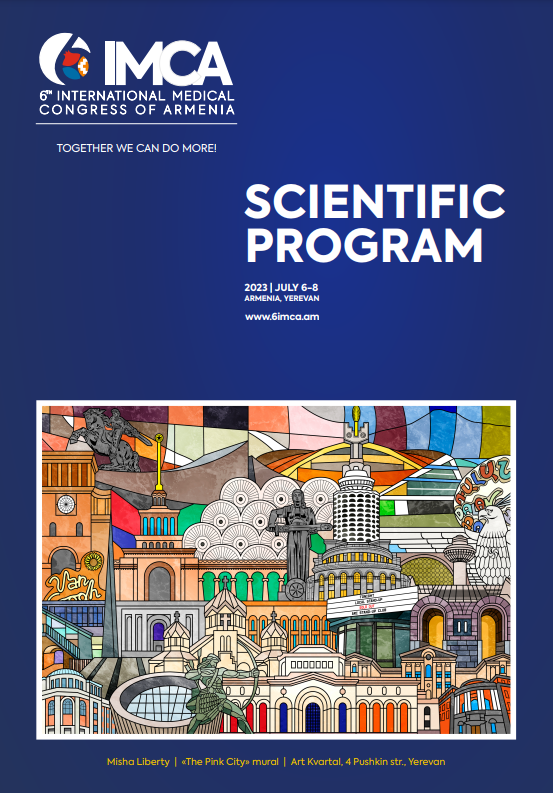
IMCA 6: “Arabkir” MC Satellite Symposiums
03 July 23
Dear colleagues,
only a few days left until the opening of the biggest medical and healthcare event of the year, the 6th International Medical Congress of Armenia. The congress will commence on July 5th at the American University of Armenia, with the main sessions taking place from July 6th to 8th at the Armenia Marriott Hotel. The honorary chairman of the assembly is the scientific director of "Arabkir" Medical Center, Professor Ara Babloyan.
Approximately 2,000 specialists from Armenia and abroad will participate in the congress and satellite conferences. The satellite conferences have already commenced, and you can find the list of conferences through the following link: https://6imca.am/satellite-symposiums.
Additionally, “Arabkir” Medical Center will be hosting the satellite conference titled "Cystic Fibrosis in the 21st Century: modern possibilities of diagnosis and treatment" on July 7th. The conference will take place in the conference hall of the medical center. To view the symposium program, please follow the link: https://6imca.am/wp-content/uploads/2023/06/%D4%BE%D6%80%D5%A1%D5%A3%D5%AB%D6%80-CF-23-06.pdf?fbclid=IwAR1JXD9_EHIdjYe2Gak_tRg3jCz4YwwQ0TRwqa9lH1IX9qxcXX8gAyee5yo
Furthermore, on July 5th, the Dermatology Service of "Arabkir" Medical Center and the Armenian Association of Pediatric Dermatologists invite you to the "Pediatric Dermatology'' satellite symposium, which will be held at Admiral Isakov 11 (Downtown Foodpark). For the detailed program, please refer to this link: https://6imca.am/.../2023/05/Pediatric-Dermatology.pdf
We extend a warm welcome to all participants and we wish you all productive and scientifically enriching days!
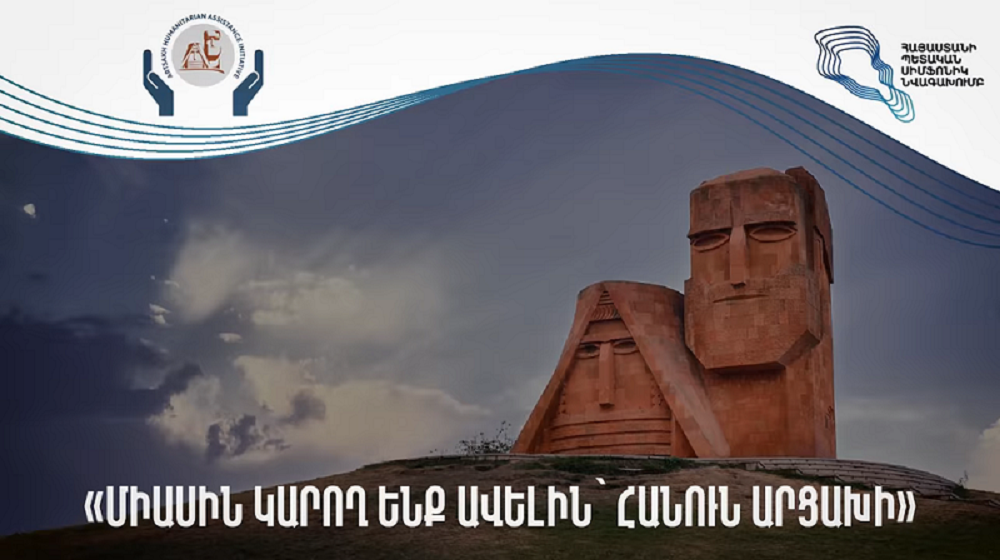
Together We Can Do More for Artsakh
30 June 23
Dear friends,
“Arabkir” Medical Center has joined the initiative “Together we can do more for Artsakh”. As part of this initiative, a charity concert will be held on July 4th featuring the Armenian State Symphony Orchestra.
Come and enjoy Anton Bruckner’s Symphony No.9 conducted by Sergey Smbatyan. The proceeds from the charity concert will be directed towards meeting the healthcare needs of children in Artsakh.
July 4th, 19:00, “Aram Khachaturian” concert hall.
To reserve your tickets, please visit the following link: https://armsymphony.am/.../con.../178/tickets/get-tickets...
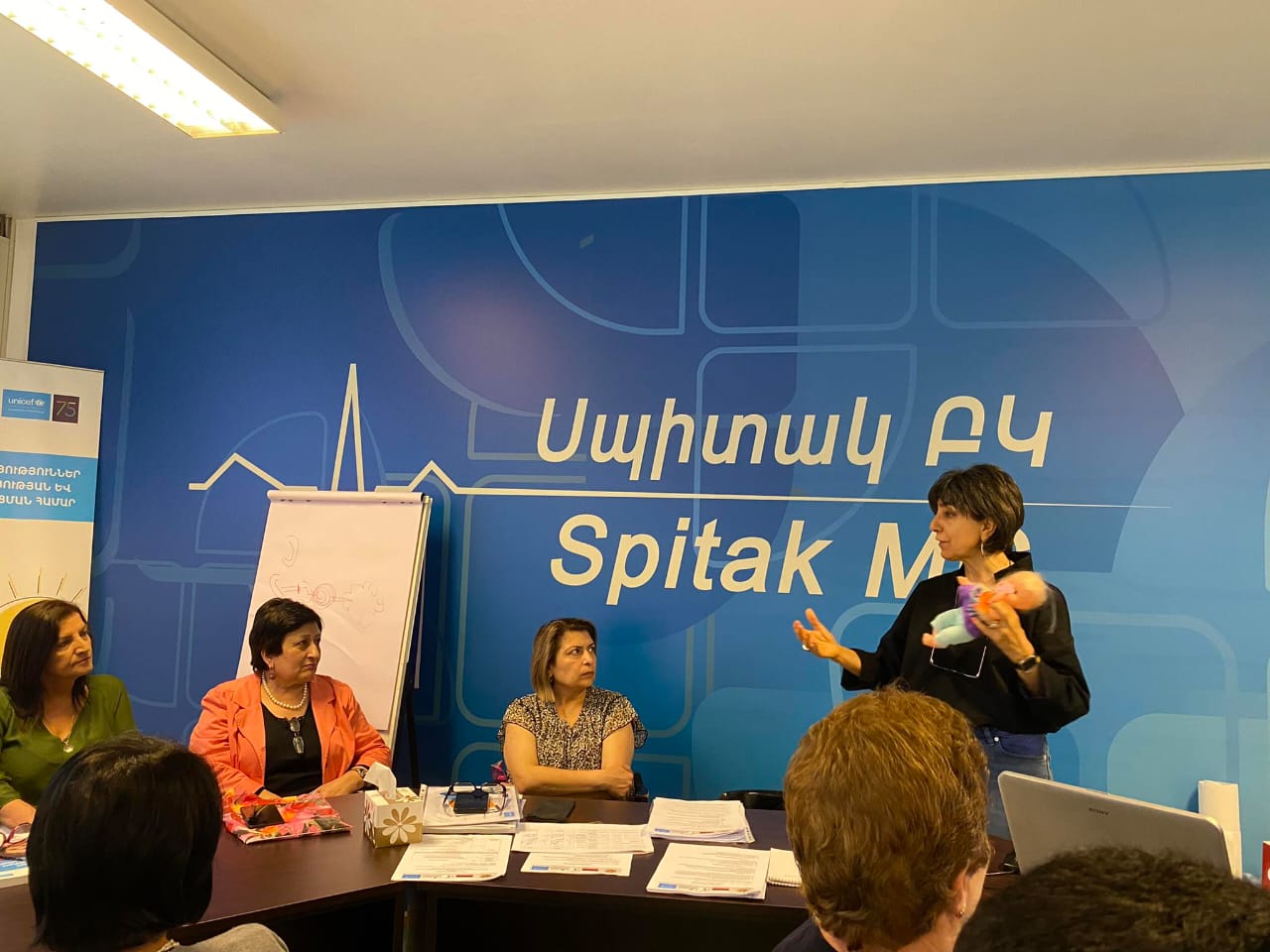
Regional Trainings: Child Development and Developmental Disorders
29 June 23
The "Arabkir'' United Children's Charity Foundation, in collaboration with UNICEF and the "Arabkir" Medical Center, organized a 6-day course on the topic of "Fundamentals of Early Detection and Intervention of Child Developmental Disorders". The course was aimed at pediatricians, family doctors and nurses from primary health care facilities in Armavir and Lori regions.
The primary objective of the training was to enhance the knowledge and skills of senior and middle medical staff in assessing child development, using cards approved by the standards of the Ministry of Health, facilitating early detection of developmental delays and organization of interventions.
The courses were delivered by experienced pediatricians, developmental pediatricians and rehabilitation specialists in the field of child development. A total of 325 healthcare professionals participated in the training. They received both theoretical and practical Continuing Professional Development (CPD) credits, which were approved by the Ministry of Health. Additionally, they were provided with a manual titled "Child Development, Developmental Delays and Basics of Early Intervention".
To ensure the application of the acquired knowledge in practice and facilitate discussion on emerging issues, monitoring support visits are being organized with experts.
The project is being implemented by UNICEF in collaboration with the “Arabkir” United Children's Charity Foundation as part of the "Improved Services for Equal Participation and Inclusive Development" program. The program is financially supported by the Russian Federation.
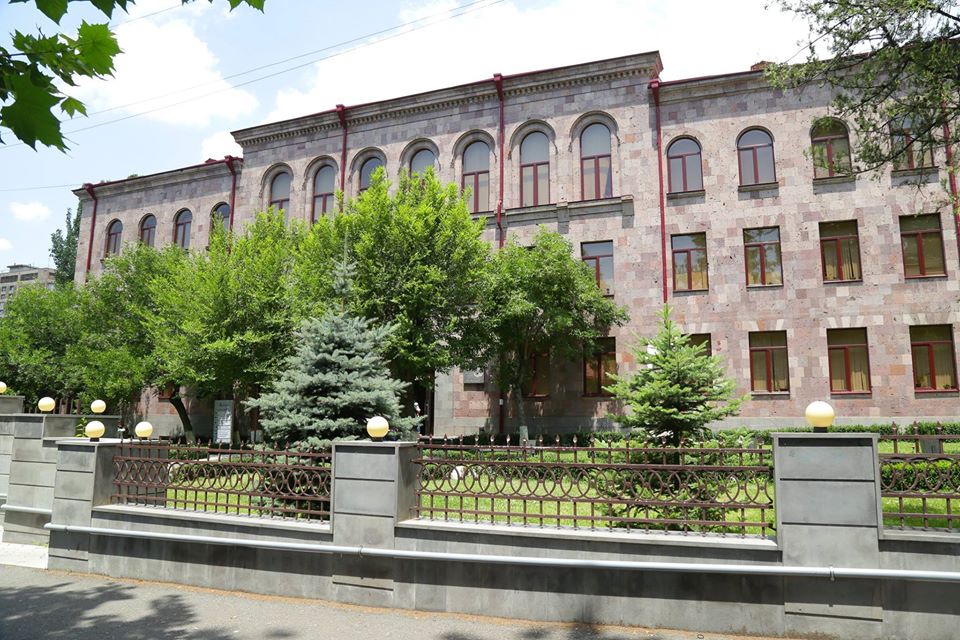
The Child from Artsakh admitted to “Arabkir” MC
24 June 23
The child from Artsakh, who is one year old, is currently in an extremely critical condition and has been admitted to the "Arabkir" Medical Complex. Earlier today, Russian peacekeepers transported the child by helicopter from Artsakh to Armenia.
It is important to note that the child was initially admitted to the "Arevik" Children's Hospital in Stepanakert a few days ago with tonsillitis and rash. However, after a few days of being in the hospital, doctors noticed that the child exhibited drowsiness and unusual, involuntary movements. They contacted their colleagues in the neurology and epileptology service of the "Arabkir" Medical Complex for professional consultation. Currently, there are no pediatric neurologists available in Artsakh, so the medical professionals maintain regular contact with the doctors at "Arabkir" through various remote communication methods.
After conducting multiple video calls and remote observations, the medical team determined that a magnetic resonance imaging (MRI) should be performed due to suspicion that the virus had invaded the nervous system, resulting in viral encephalitis and affecting the brain. The doctors in Artsakh promptly arranged for the examination and the diagnosis was confirmed. However, it was not possible to obtain a more detailed diagnosis specifying the exact virus responsible for the issue. This was due to the complete closure of the road to Artsakh for over a week, and the specialized virus tests can only be conducted in Armenia.
Arranging treatment in Artsakh is currently impossible due to the lack of necessary medications in Stepanakert. The child’s health condition was in significant danger, especially when the MRI revealed another serious problem: aside from inflammation, hemorrhage was also observed in the child's brain. The doctors in Artsakh made urgent and selfless efforts to manage the child's condition in the resuscitation department. However, as the days passed, the child’s condition deteriorated further, making it evident that managing his condition in the besieged Stepanakert was no longer feasible and he should be transferred to Yerevan.
The process of organizing the transfer took additional 24 hours, during which the child's condition worsened, leading to the onset of convulsions. Consequently, anticonvulsant medication was prescribed.
The child was initially transferred from Artsakh to Sisian via helicopter. From Sisian, the child was transported to Yerevan by the resuscitation and intensive care team of the "Arabkir" Medical Complex, using a specially equipped resuscitation vehicle. Currently, the baby is in the examination phase to further clarify the previously established diagnosis and determine the subsequent treatment plan.
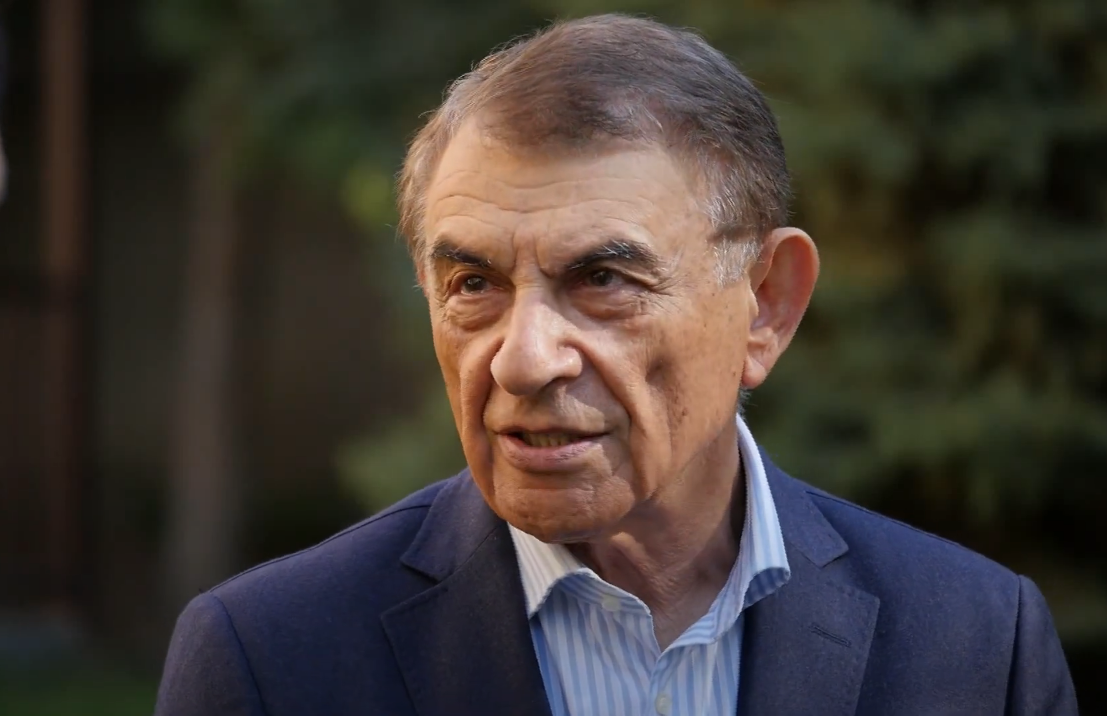
Seeking Solutions: Preserving the Lives of Peaceful Citizens
21 June 23
"I suggest exploring alternative means to resolve the issue and without endangering the lives of civilians". Ara Babloyan answered the questions of iravunk.com.
For the past 7 days, both the Russian peacekeepers and the Red Cross have been unable to deliver medicine and food to Stepanakert. Additionally, they cannot transport critical patients to Yerevan due to the closure of the Hakari checkpoint, which is closed by the Azerbaijani side for humanitarian cargo and passenger transportation. Ever since the failed attempt to place their flag on the section leading from the bridge to Kornidzor, the people living in Artsakh have been completely isolated.
What problems will the humanitarian disaster bring with it? We approached Professor Ara Babloyan, MD, the scientific head of the “Arabkir” MC to gain his perspective on this.
- Yes, Artsakh, which has already been under blockade for months, is currently facing an even more difficult situation. The blockade has intensified, making it increasingly difficult to deliver medicine and medical supplies to our compatriots living in Artsakh through the Red Cross and Russian peacekeepers. Furthermore, the transfer of patients from Artsakh to Armenia, who require medical treatment that cannot be provided locally, has also become impossible. This means that these individuals may effectively be sentenced to death.
It is crucial to note that we have patients in Artsakh who have undergone organ transplants and cannot sustain their lives without our medical services and the medicines we used to send.
Therefore, this situation poses a stark choice: either death or becoming part of Azerbaijan? As a doctor, this is unacceptable to me.
At the same time, the professor emphasizes.
- Throughout my professional life, I have treated hundreds of Azerbaijani children and I assure you that even during the tense relations between Armenia and Azerbaijan in the late 80s and early 90s, I never differentiated between Azerbaijani and Armenian children in need of medical treatment. This is one of the fundamental principles of our humanitarian profession.
I want the authorities of Azerbaijan to look into the eyes of their children and grandchildren, and try to feel what the blockade holds for the children of Artsakh. I propose finding alternative solutions to resolve the issue that do not sacrifice the lives of innocent civilians.
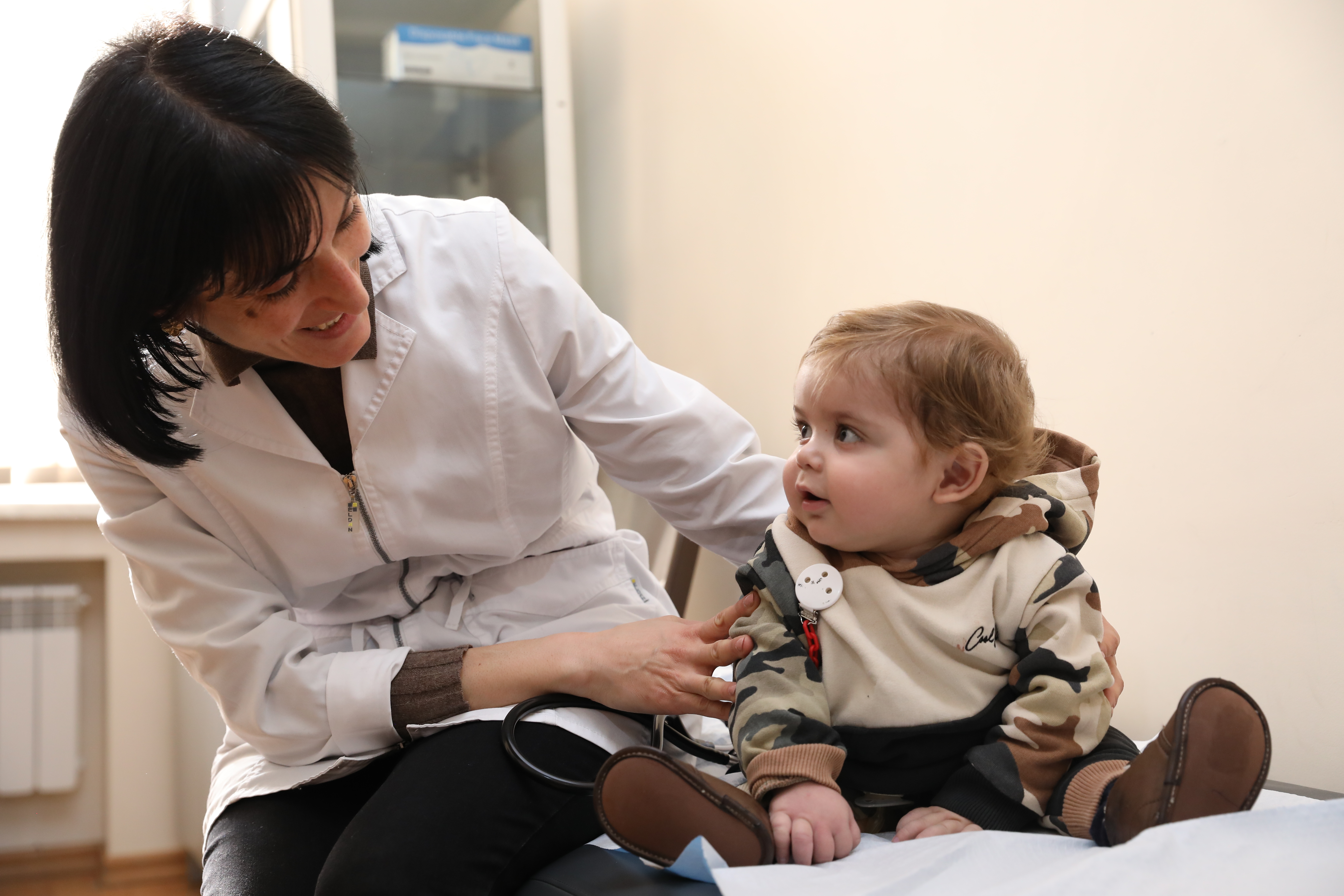
June 21st: Medical Workers’ Day
21 June 23
Dear colleagues: doctors, nurses, orderlies, healthcare organizers,
We congratulate all of you on the occasion of the Medical Workers’ Day!
We express our gratitude for your professionalism, professional support, dedication, and care. Your commitment keeps us in sync with the world’s leaders in healthcare. Each one of you plays an invaluable role in a vast and intricate chain of disease prevention, diagnosis, treatment, patient monitoring, rehabilitation, and preservation of this chain’s integrity is the greatest guarantee of success.
We wish you health and peace, continuous professional growth, a sense of appreciation, happiness with your families. May you remain an integral part of this vital chain, making it stronger and unbreakable.
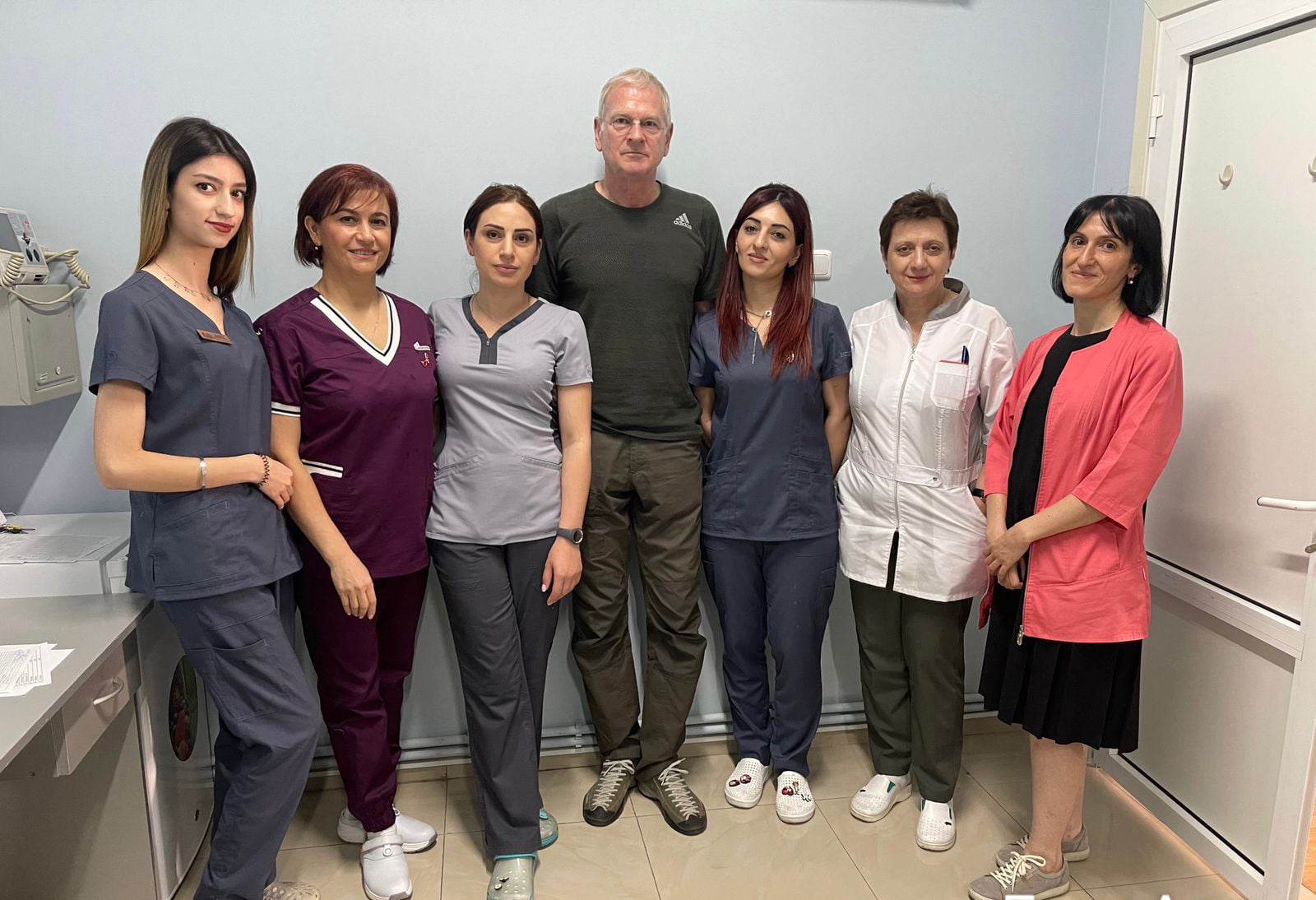
Professor Christian Braegger visits “Arabkir” MC
16 June 23
The visits of our Swiss colleagues to various services and departments of "Arabkir" MC continue. Last week, Professor Christian Braegger, a renowned gastroenterologist, nutritionist, who previously headed the Gastroenterology and Nutrition service at the University Children's Hospital of Zurich, was the honored guest of the Gastroenterology and Endoscopy services.
During his visit, the professor conducted a workshop focused on endoscopic examinations of children, including gastroscopy and colonoscopy, as well as modern approaches to interpretation. Gastroenterologist-endoscopist Ani Hovnanyan performed 22 examinations during those days in the direct presence of the professor, benefitting from his advice and guidance throughout the procedures. Sona Martirosyan, was responsible for the anesthesia for the research. The gastroenterology service team, in collaboration with the general pediatric department, handled patient selection and preparatory work for these examinations.
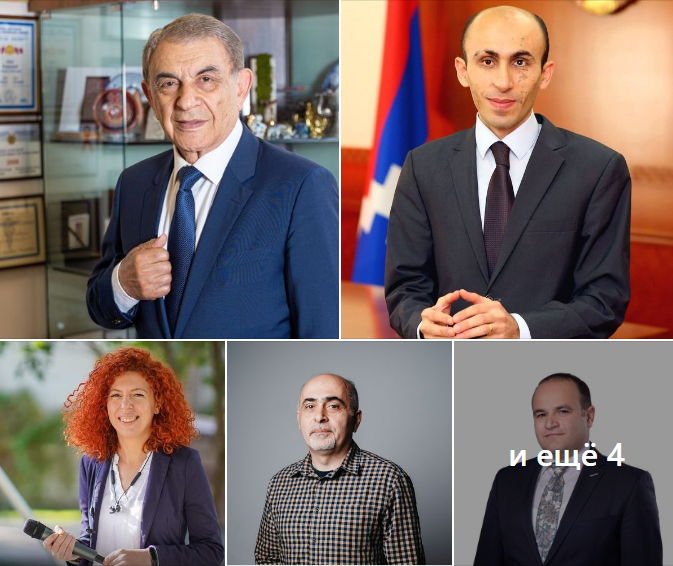
Ara Babloyan Joins HFC Board as a Member
14 June 23
The collaboration between the “Arabkir” Medical Center and the Health Fund for Children of Armenia (HFC) sets an exemplary model: joint efforts aimed at improving children’s lives and their quality of life.
We are glad to inform you that Professor Ara Babloyan, the scientific head of the “Arabkir” MC, is now part of the new board of trustees.
We extend our best wishes to the HFC team for success in all their humanitarian endeavors.
https://www.facebook.com/hfcarmenia/posts/pfbid0XDShnGhmAsZ1xWLWne7VVJ4f2XmeTGvbemFb2UkggkZYoLx478UgJJLS1qAz2TeHl
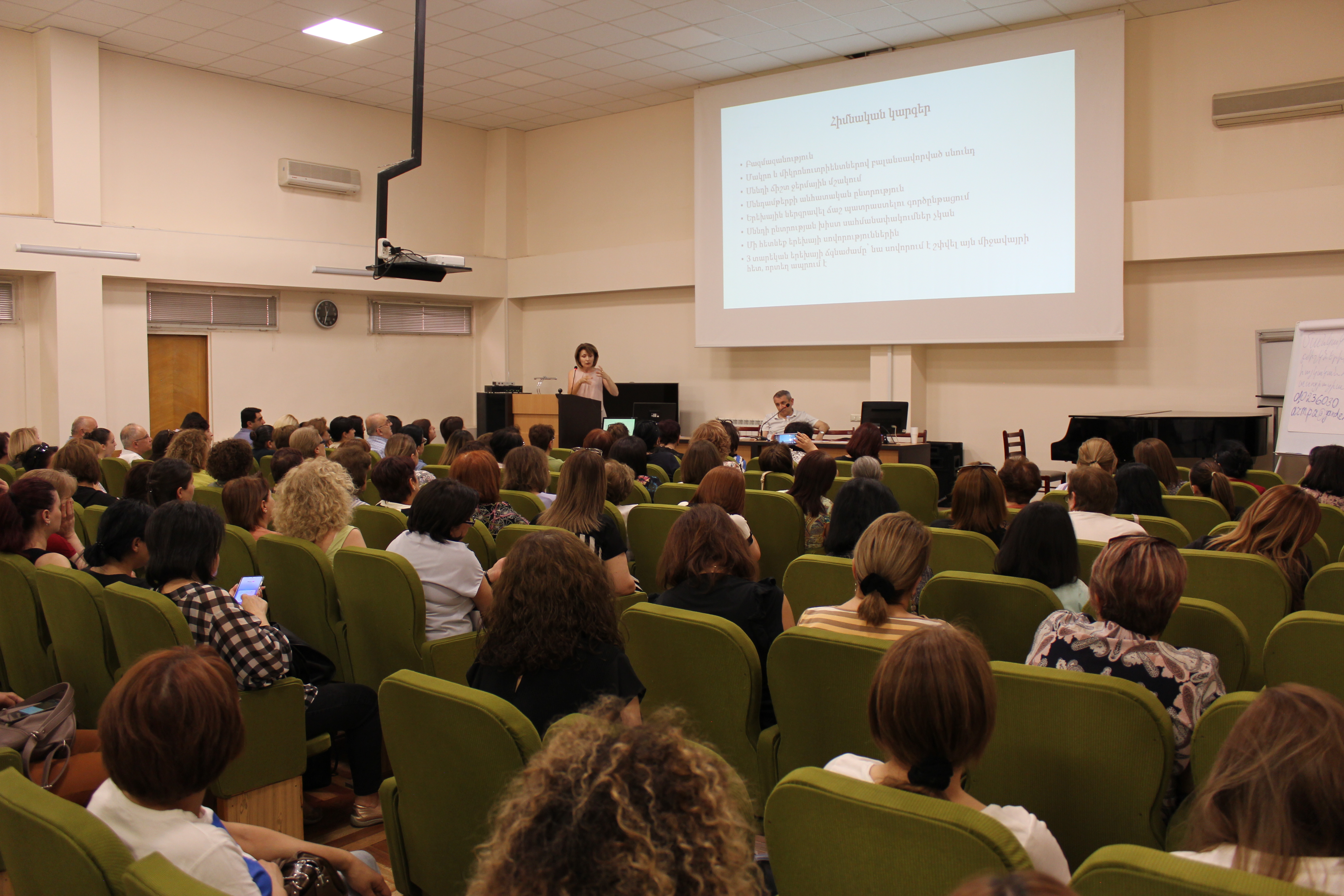
Pediatric School 2023
13 June 23
The "Pediatric School 2023" was recently held as part of an annual series of traditional lectures organized by the Armenian Pediatric Association. This year, more than 160 doctors from across the country participated in the school. The majority of attendees were pediatricians and family doctors working in primary healthcare, along with other specialists from various medical institutions.
Distinguished specialists from Armenia and the Russian Federation delivered lectures on several important topics in modern pediatrics, including pediatric gastroenterology, neurology, pulmonology, dermatology and cardiology. The program has been certified by the Ministry of Health of the RA, and the doctors will receive CPD credits.
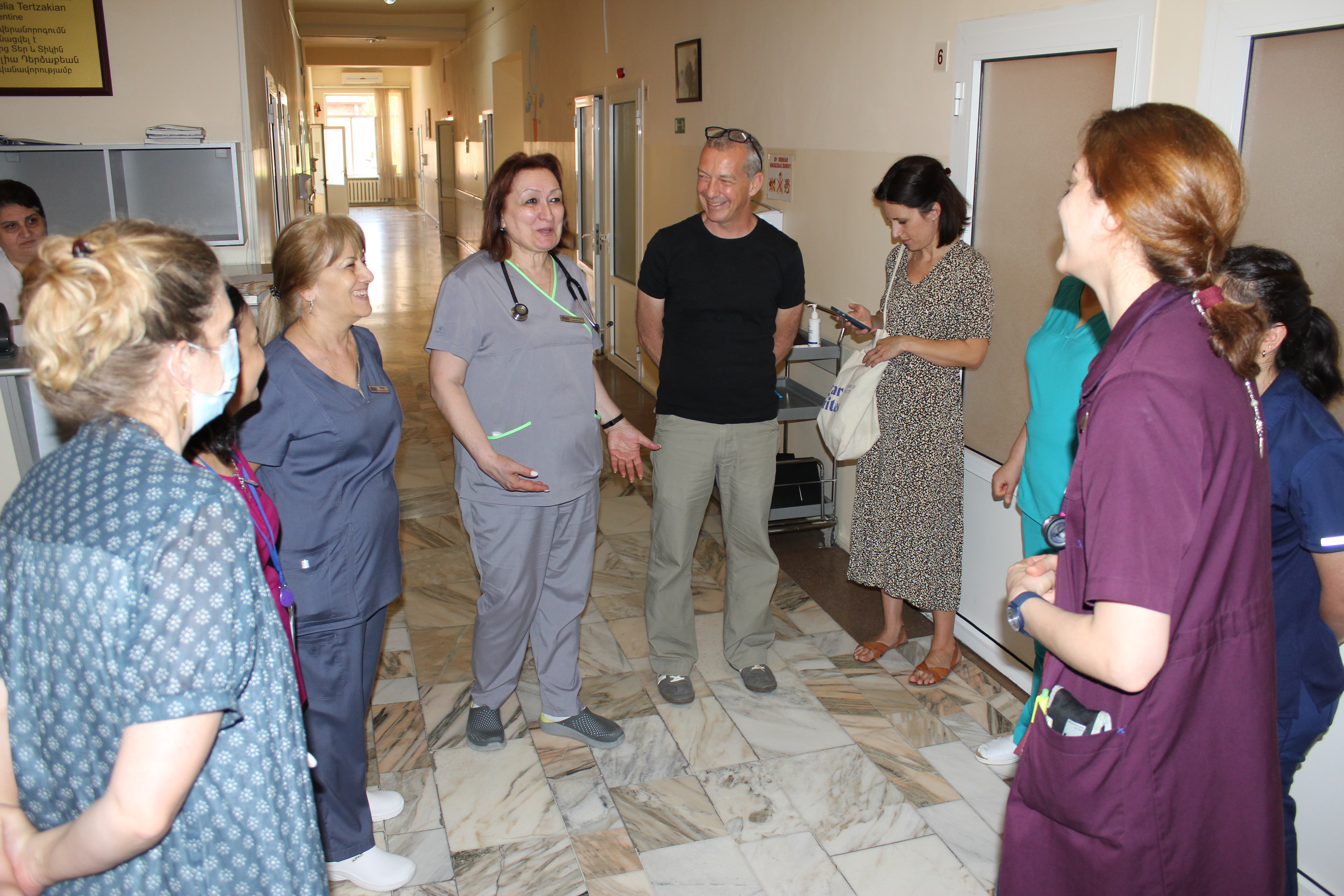
Cooperation Zurich - “Arabkir”
10 June 23
As part of an ongoing collaboration, specialists from the University Children's Hospital of Zurich recently visited the "Arabkir" Medical Center. The delegation included George Shtabuli, the head of the emergency medical service, along with nurses Neila Paioni and Stephanie Davidson.
The visit featured productive meetings with colleagues from "Arabkir", which involved active discussions, case observations, comparison of medical approaches, lectures, and, of course, exchange of practical skills and project ideas. Specialists from the reception and emergency medical departments, as well as other pediatric departments, had the opportunity to share their experiences with George Shtabuli, Neila and Stephanie.
The lectures delivered by George Shtabuli and Neila Paioni's on topics such as fever in babies, pain management and triage sparked active questions and discussions. According to doctors, such meetings have a highly positive impact, particularly on the professional development of young healthcare professionals.
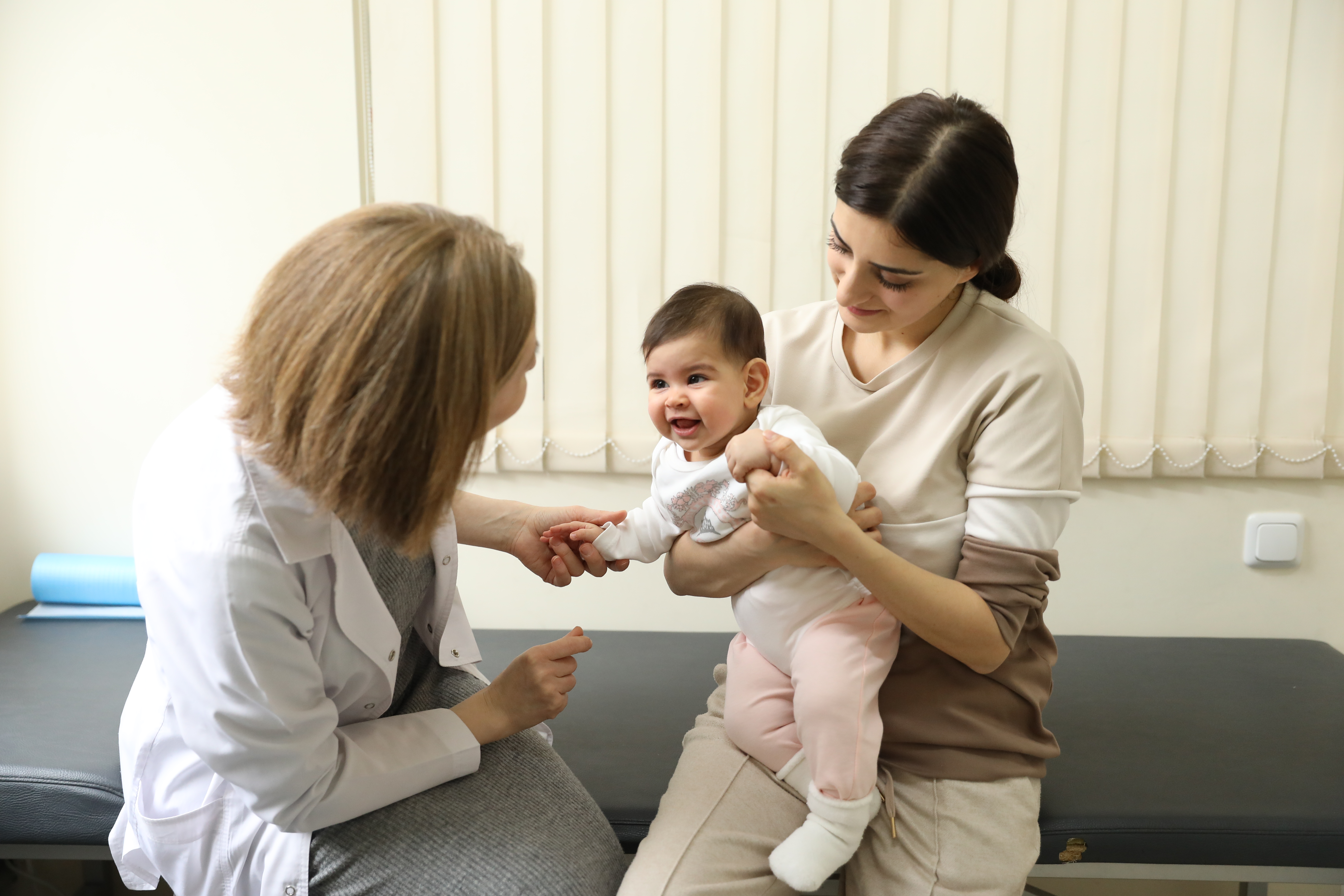
Pediatric School 2023
06 June 23
Dear doctors,
On June 10th, this year’s series of annual lectures of the “Pediatric School” will be held at “Arabkir” MC-ICAH.
The program features lectures by renowned pediatricians from Armenia and Russia, focusing on modern issues of Pediatrics.
The program has been certified by the Ministry of Health of the RA. Physicians who have registered and participated in the required order will receive certificates with CPD (Continuing Professional Development) credits.
To register, please send an e-mail to [email protected].
The program and agenda can be found below.
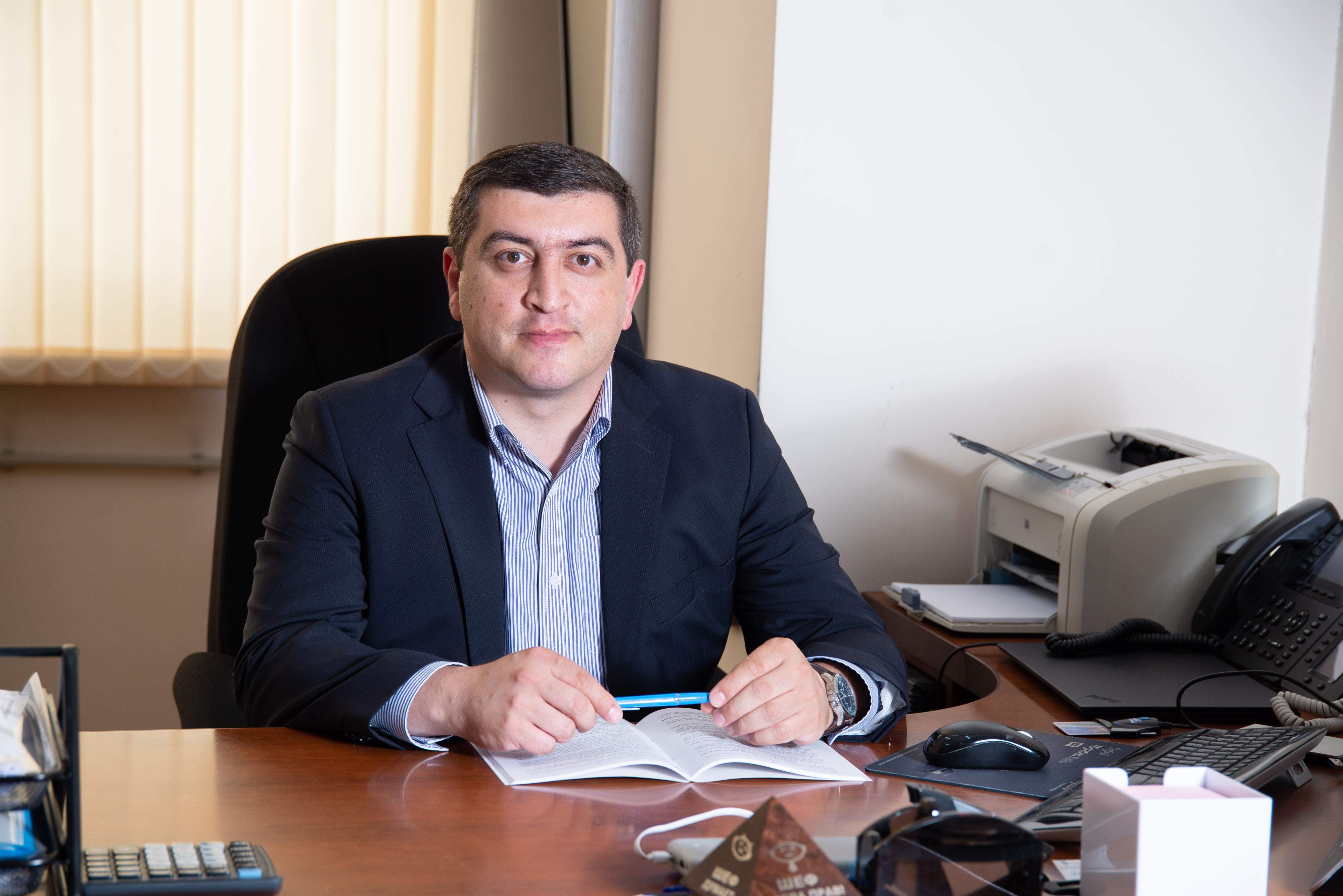
Children’s Health Rights and Pediatric Issues
01 June 23
“I wish for all our children to be healthy and to live in a peaceful and safe country. This is the most important thing. And, of course, I wish them to have opportunities to ensure all their rights - health, educational, social and others”.
Arman Babloyan, the director of “Arabkir” MC-ICAH has answered the questions of news.am: occasion - Children’s Day, topic - children’s right to health and current issues of pediatrics.
June 1st is the International Children's Rights Protection Day, with the right to health holding a special significance. NEWS.am Medicine recently interviewed Arman Babloyan, the director of the “Arabkir” Medical Center - Institute of Child and Adolescent Health, to discuss the topic.
Mr. Babloyan, Pediatrics plays a crucial role in upholding children’s health rights and is considered one of the most vital branches of medicine. As the head of one of the most prestigious and third-level pediatric institutions in Armenia, what is your opinion, what is pediatrics like in Armenia today, what prospects do we have in this field?
Thank you, the topic is very important. We have a very common expression: children are our future, but our approach is different: children are our present, our today, and they have their rights, including the right to health. Therefore, we - the state, society, doctors, all of us - must make every effort to protect children's right to health. Simultaneously, as part of a strategic approach, the state must recognize that a healthy society cannot be achieved without ensuring the health of its foundation - children. In other words, the health of society is directly linked to the health of children. Today's children’s health serves as a guarantee for a future society of healthy adults, and by safeguarding children’s rights today, we aspire to build a healthy society and a safe country in the future.
Consequently, pediatrics should consistently occupy a primary and unique position within healthcare, as advocated by the WHO and observed in high-quality healthcare systems of developed countries, where the prioritization of motherhood is unquestioned. However, it is regrettable that over the past 20 years, there has been a decline in interest in pediatrics as a profession, and only the dedicated pursue this field.
Is it possible that it is related to the Pediatrics faculty being closed?
Certainly, the closure of the faculty of Pediatrics had its significance in this matter, but it would be incorrect to solely attribute the problem to that. Generating interest among new graduates in the field of pediatrics should be a broader concern. And perhaps not the first, but one of the primary factors that sparks interest is the remuneration for work. When we compare the prices of medical services for children and adults, we observe a significant difference in approaches. Adult services are differentiated and reflect the actual value of the service, whereas children’s services are often averaged, which does not motivate new graduates to choose pediatrics. They tend to opt for adult medical professions so that they can later contribute to a more prosperous life for their families.
If we look a little wider, what would you highlight, what is important for solving the problems of Pediatrics in Armenia?
I think that first of all we should think in three main directions: firstly, the development of primary care, which will alleviate the burden on the hospital care and will not waste hospital resources on prevention, consultation, research and treatment of those diseases that can be fully managed at the primary level. And parallel to this, the second direction is the development of hospital services. They are highly interconnected. And the third area, of course, is education, both university and postgraduate, and continuous professional development so that we can provide the field with the necessary personnel. I think this should be a priority in the coming years because of the shortage of healthcare personnel in the field of pediatrics due to the circumstances already mentioned.
And finally, your wish for June 1st.
I wish for all our children to be healthy and to live in a peaceful and safe country. This is the most important thing. And, of course, I wish them to have opportunities to ensure all their rights - health, educational, social and others.
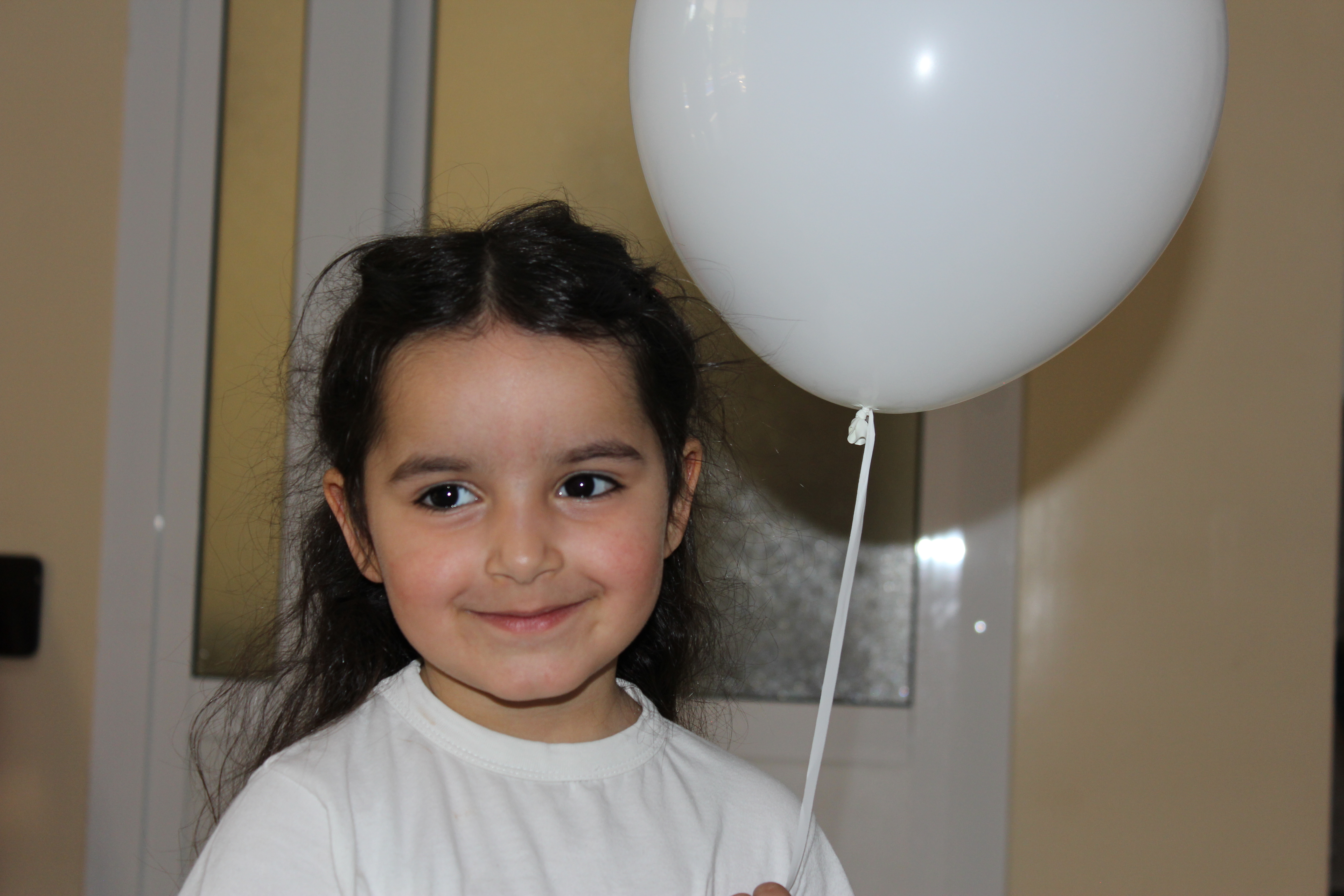
Happy Children's Day!
01 June 23
What is sincerity? It is a child's smile.
Our team, working with children, is fortunate. We witness sincerity every day, but today we experienced an abundance of sincerity with the assistance of artists from Happy House.
The little ones participated in celebrations with songs, dances and games. They had their photos taken with Teddy Bear and were thrilled to see balloon animals, skilfully crafted by the host, Arman. Both children and their parents enjoyed the show.
We wish all children a joyful June 1st and want to highlight that our dedicated doctors work night and day to protect your right of health. It is a mission for children’s healthy, peaceful, safe, bright present and future. Thank you, dear pediatricians and congratulations once again, our happiness - children.
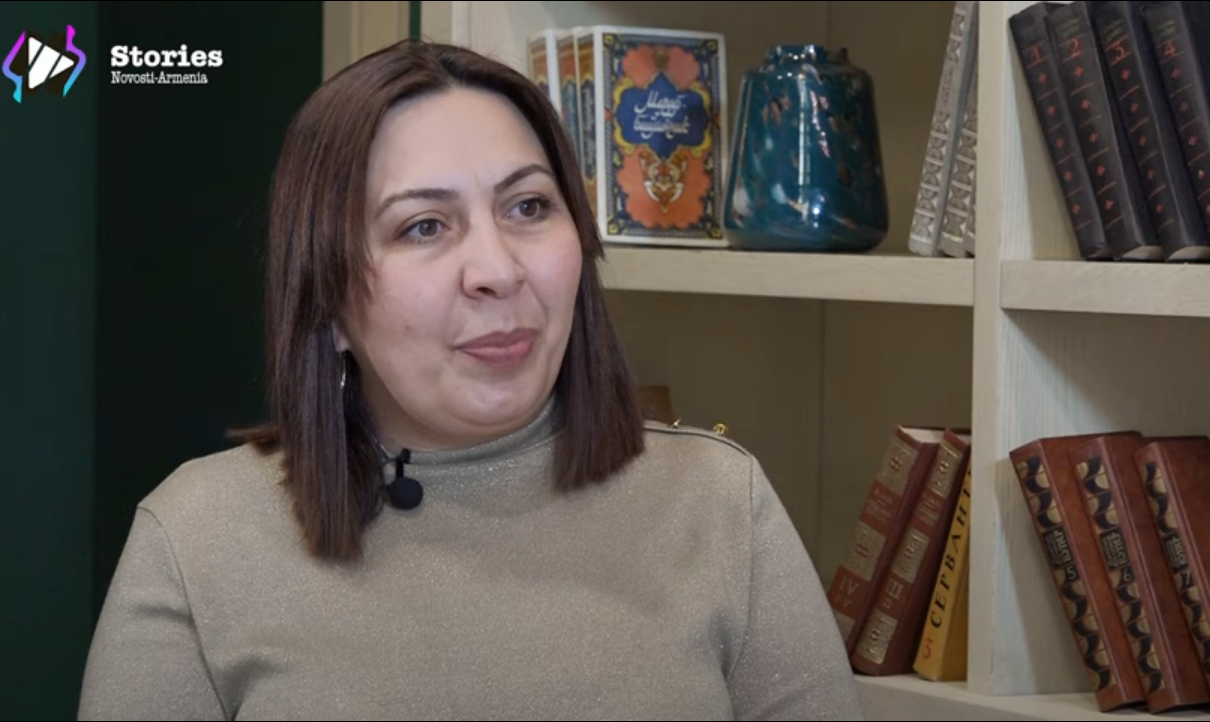
Hearing therapist about child’s speech development
26 May 23
Hearing therapist Marine Grigoryan has presented interesting details about speech development of children with hearing problems.
Discover more about hearing disorders, early identification of hearing loss, understanding the compensation of hearing loss, the potential consequences of delaying professional assistance, the importance of high-quality hearing aids in speech development, the significant role of the hearing therapist in the development of deaf children, and the myths and facts surrounding this field.
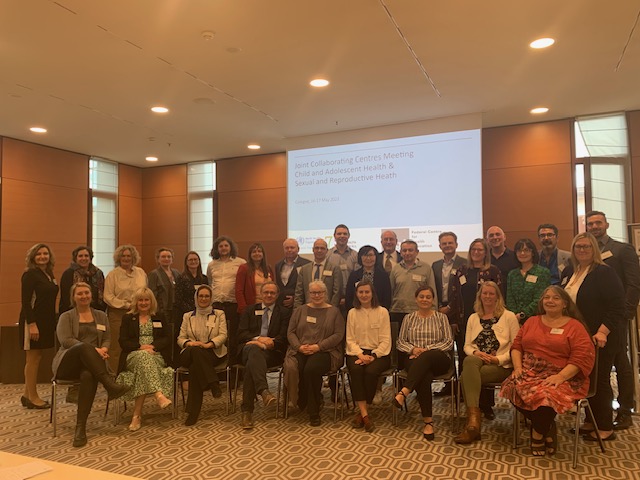
Sergey Sargsyan at WHO discussions
23 May 23
Sergey Sargsyan, the Head of the Institute of Child and Adolescent Health of “Arabkir” Medical Center, recently participated in a discussion on Child and Maternal health, focusing on the progress and future plans of WHO projects in these areas in Europe. The discussion covered topics such as child development and rehabilitation, the health of school-aged children and adolescents, improving the quality of medical care, policy development and more. Experts from several countries, including Great Britain, France, Germany, Italy, Switzerland, Norway, Ireland and Armenia, took part in the discussion.
During his visit to Germany, Sergey Sargsyan also visited Uelenkinder Center in Hamburg to learn about local experiences in organizing children’s palliative care. The German partners presented the features and functions of services for identifying, referring, and organizing follow-up care for children in need of palliative care.
Sergey Sargsyan told about the efforts undertaken in this field in Armenia, highlighting that in recent years the World Health Organization and “Arabkir” MC-ICAH have been working on implementing pediatric palliative care in Armenia. In particular, with the support of the Open Society Institute, an assessment of the situation, the development of a concept, guidelines, educational materials and a project of standards have been carried out. Currently, practical work is already underway for the full implementation of the service in Armenia.
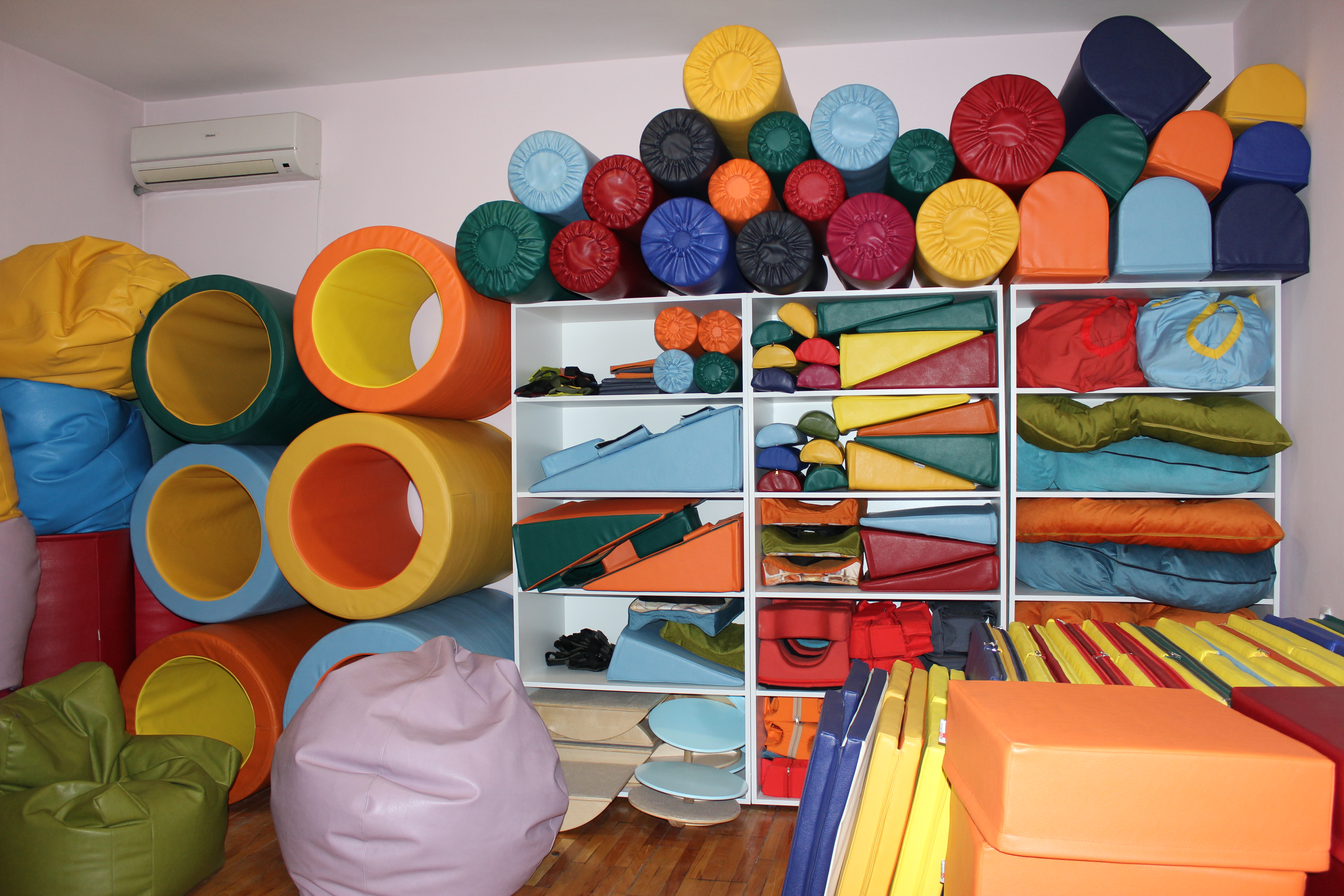
Inventory at “ArBeS” Health Center
22 May 23
An “Inventory” has been opened at the “ArBeS” Health Center, functioning similarly to a library, but instead providing equipment and furniture to children undergoing rehabilitation therapy at “ArBeS”. The aim is to support children’s families ensuring they have necessary equipment at home such as special tables and chairs, stands, rollers, mattresses, and folding ramps. This type of equipment is particularly vital for children with musculoskeletal disorders. Recognizing this, parents have joined forces united in the “Source” Foundation under the leadership of Marina Parazyan, to implement various projects aimed at enhancing the quality of children's lives.
This project, supported by UNICEF and the “Izmirlian” charitable foundation, is a successful example of collaboration that parents believe should continue on an interdepartmental level.
The opening ceremony of the “Inventory” was attended by Deputy Minister of Health Artak Jumayan, Armen Chobanyan (head of the Armenian office of the “Izmirlian” Charitable Foundation), Maya Simonyan (Early Childhood Development officer of UNICEF) , Arman Babloyan (director of the “Arabkir” MC-ICAH), Ara Babloyan (scientific head of “Arabkir” MC-ICAH), Manushak Yeritsyan (head of the “ArBeS” Health Center), specialists, parents, and other guests.
Ara Babloyan acknowledged the proactive role of parents, emphasizing that even the most brilliant ideas would be unattainable without strong parental connections. The collaboration between the “Source” Foundation and “Arabkir” MC serves as an example of this, and there is confidence that the project will succeed.
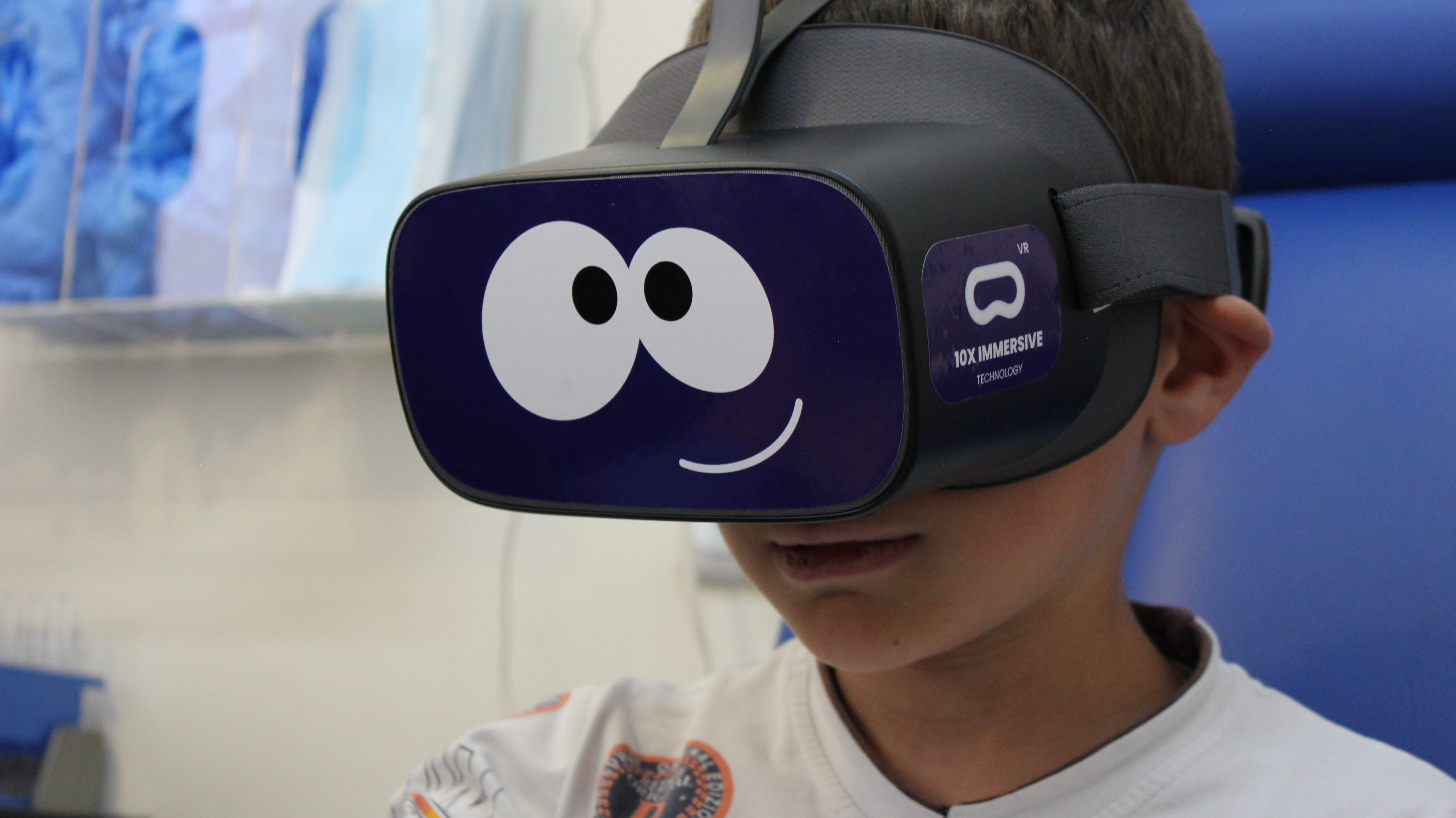
Virtual Reality Glasses for Pain Relief
19 May 23
Arthur and Alen came to the “Arabkir” Medical Center to be examined, which usually begins in the laboratory. Boys, of course, are brave and not so afraid of “bee sting”, but our partner 10X Immersive has made this process more entertaining for them and all other children.
With virtual reality (VR) glasses, children appear directly in the center of the cartoon, becoming, for example, a captain who protects the ship from attackers, or another hero who has to help animals. And at the same time, our skilled nurses perform the intervention without causing any discomfort or pain to the children.
According to psychologists, this is a good way to divert children’s attention at that moment and to carry out the intervention quickly and without stress. According to some studies, with the help of virtual reality glasses, the pain threshold can be reduced by up to 35%, which primarily helps children and their parents, as well as, of course, specialists. Our laboratory nurses, who work with children every day, say that since the glasses appeared, the crying is less, everyone does their own thing: the children watch their cartoons, and the nurse takes samples.
Arthur and Alen also admit that they didn’t feel anything. Alen says: I’ve heard that there are such glasses, but I’ve never worn them. It was very fun, it’s a pity it didn’t last long.
Thank you, 10X Immersive team!
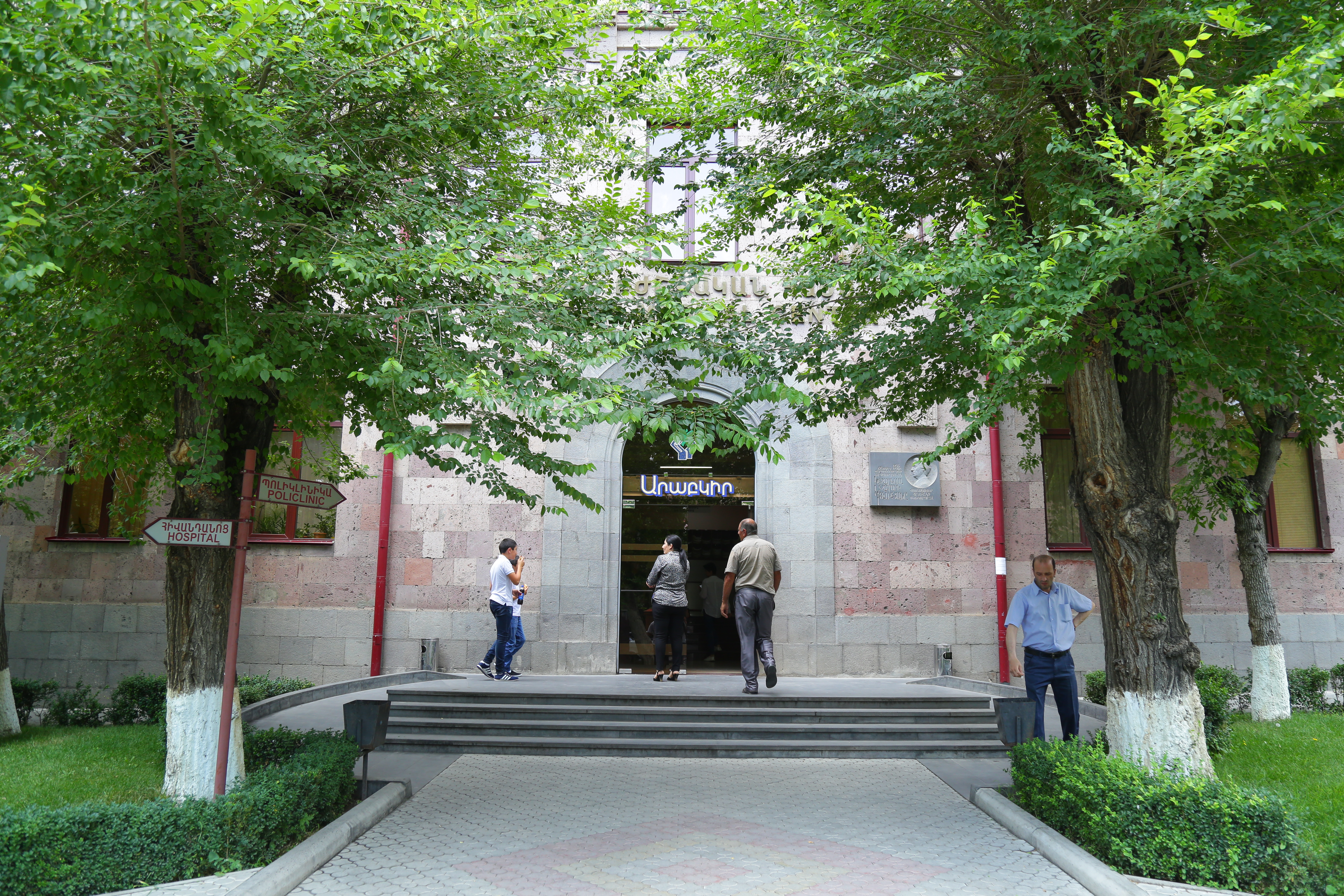
ATTENTION: Changes in Queue
15 May 23
ATTENTION!
Dear visitors,
We want to inform you about recent updates regarding the waiting lists at “Arabkir” Medical Center.
If you have a scheduled appointment through a state order for any service but haven't received a call from the registrar regarding a new appointment date, please contact the respective department again and confirm your new visit date.
General contact number: 015 400 300 and extension 11 11.
Department phone numbers are available via the link.
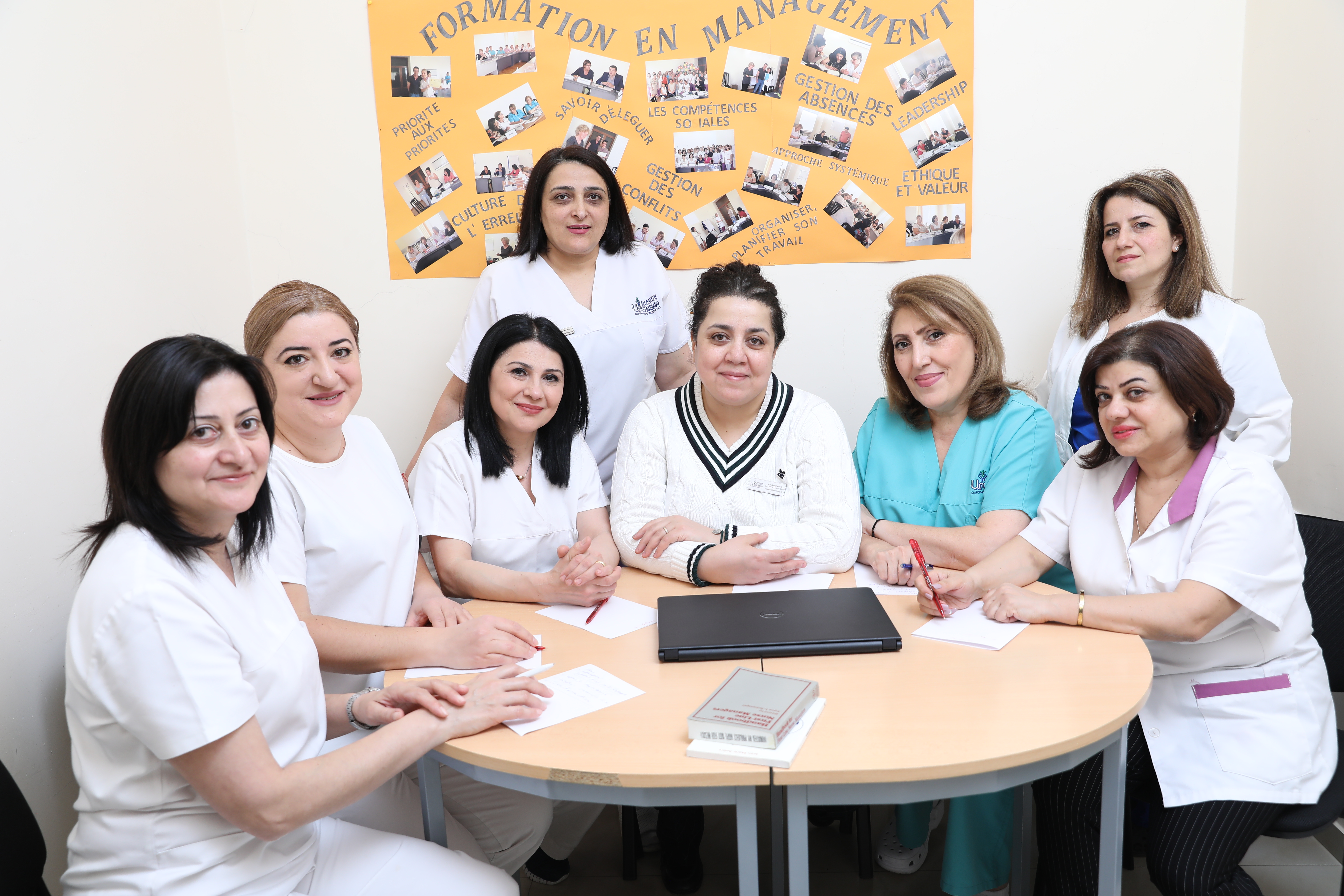
International Nurses Day
12 May 23
This important day was marked in the medical calendar in the honor of the daughter of English banker William Nightingale, Florence, who was born on May 12, 1820. This is an opportunity to tell about the brave decisions of Florence Nightingale, a fragile young woman, who wanted to leave her home, go to Germany and study nursing, so she can be next to wounded and those in need throughout her life as a true nurse.
In the memoirs of the Crimean War, it would be said about Florence later. “The “lady with the lamp” who arrived in Crimea from England with her group of devotees, walked around the rows of sleepless wounded all night long, giving one a glass of water, another a pill, and giving the next one a simple human smile. It was she who was entrusted with the management of the army hospital in Scutari and in that regard, the wounded soldiers were lucky."
After the war, Florence returned to Britain from the Crimea as a true hero, who was awarded with by the Queen herself, asking her not to stop working. It was then that Florence founded the Nightingale Training School, educating new generations and passing on her knowledge and skills to younger colleagues.
We are happy to state that the strong nursing team of "Arabkir" Medical Center is one of the most loyal followers of the pioneer of modern nursing work, Florence Nightingale. Our Nursing Council, founded with Swiss friends, also pursues the professional development and progress of nurses with regularly held courses and conferences. Today, our skilled nurses not only receive continuous training, but also train young specialists both from "Arabkir" and from other medical institutions.
Dear nurses, we congratulate you on your day! We wish you a blissful feeling of flying in your professional and responsible field, keep going, traveling and learning non-stop. And if you walk through Waterloo Square in London one day, stop for a moment, smile and bow before the statue of Florence Nightingale.
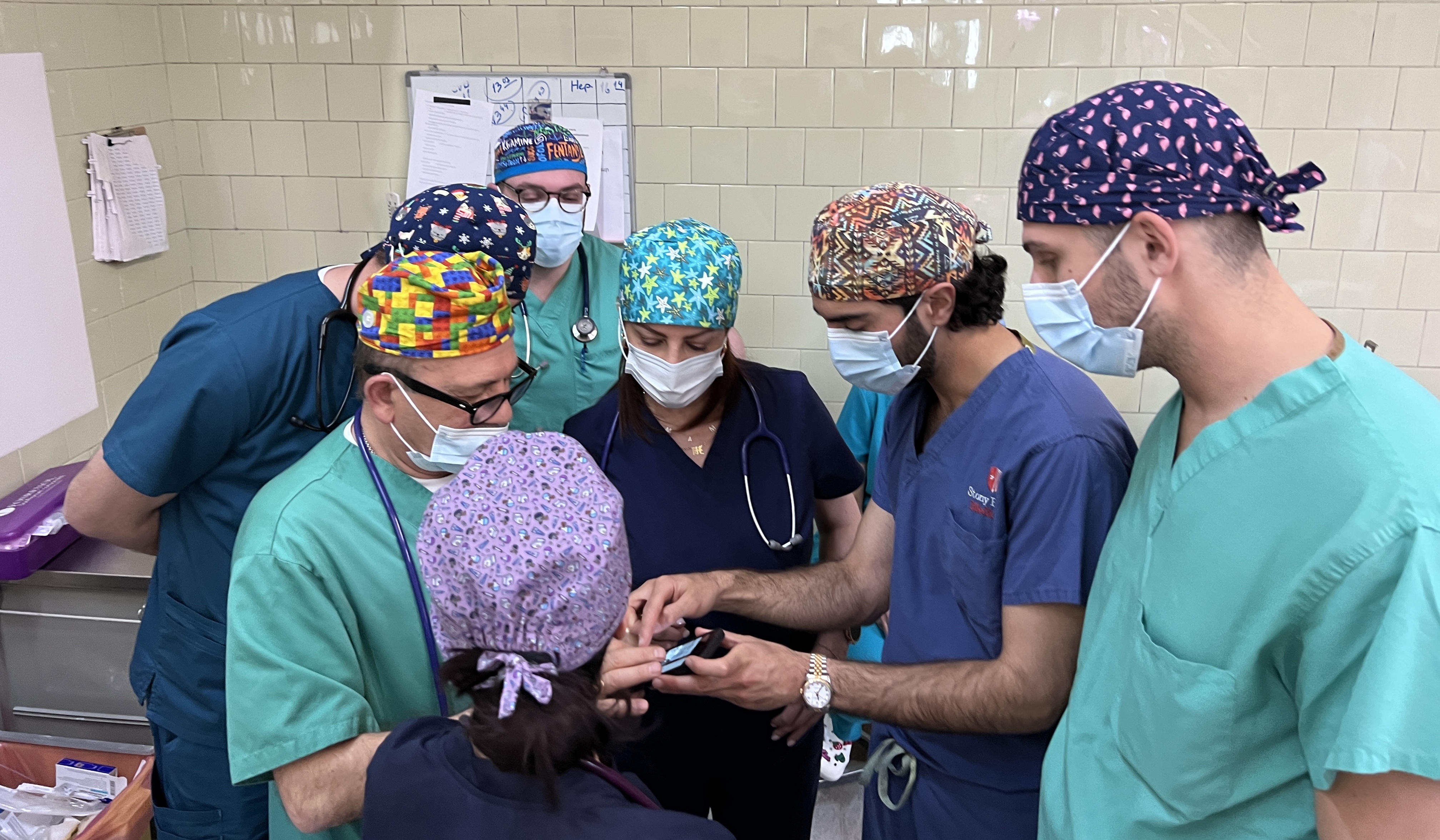
Cooperation “Arabkir - Stony Brook''
08 May 23
The anesthesia - surgical team from the Stony Brook University of New York was in “Arabkir” Medical Center under the leadership of our compatriot, pediatric anesthesiologist, Doctor of Medicine Vahe Tadevosyan.
This was another visit made within the framework of many years of cooperation in order to share and exchange innovative experience and skills with each other. In addition to joint consultations, discussions and work in the operating room, the specialists from the US presented interesting clinical cases and new scientific materials. They emphasized that with each visit to “Arabkir”, they consistently learn something new and valuable from their colleagues, which they are then able to apply in their practice, making these visits extremely important for them as well.
News.am
“Anesthesiology, especially pediatric anesthesiology, is one of the most complex fields of medicine. Working with children in this field is special, based on both anatomical and physiological nuances, as well as pharmacological ones”. Khachatur Kyurkchyan, head of the anesthesiology and intensive care department of the "Arabkir" Medical Center, said this in a conversation with NEWS.am Medicine.
According to him, this is one of the cases when it is not possible to say that the organism of a child is the same as the organism of an adult, just smaller. No. A specialist who does not know the anatomical and physiological characteristics of a child cannot successfully perform anesthesia, especially when it comes to babies one or two days old, whose brain is more sensitive to oxygen deprivation and whose cardiovascular system is less compensated.
That is why, according to him, following international developments in pediatric anesthesiology, learning about innovative approaches, and exchanging professional experience and skills are very important, and "Arabkir" Medical Center cooperates with a number of clinics and professional associations for this purpose, including Vahe Tadevosyan's team from the famous Stony Brook clinic in the USA.
"And the exchange of experience and the discussion of cases regarding modern pediatric anesthesiology are important especially for those who are new to this field," Khachatur Kyurkchyan said.
Now, the "Arabkir" Medical Center once again hosted a group of anesthesiologists and surgeons from Stony Brook University Hospital in New York, led by the famous Armenian anesthesiologist, Doctor of Medical Sciences, Vahe Tadevosyan.
"For years, I have had a working relationship with the administration and teaching staff of the "Arabkir" Medical Center, and now I am lucky enough to gather a multidisciplinary team to come to Yerevan and work with our Armenian colleagues. Our goal is professional dialogue, discussion of ideas and exchange of experience. And I am very happy that we succeed, our visits create opportunities for professional mutual assistance," said pediatric anesthesiologist Vahe Tadevosyan from the Stony Brook University Hospital.
These visits for exchange of experience and skills are of great importance for specialists from both sides, because in the conditions of daily development of practical medicine, innovative solutions appear, which are certainly interesting and educational.
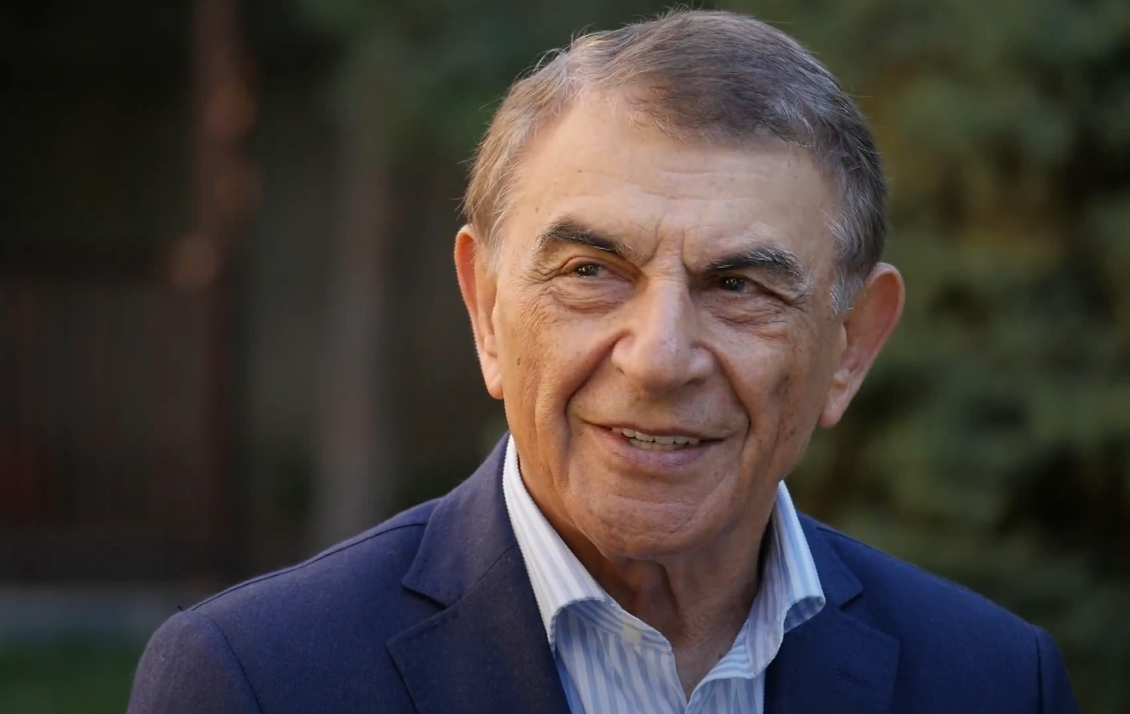
Happy Birthday, Professor Ara Babloyan
05 May 23
Happy Birthday, dear Ara Sayen,
We wish you health, peace and opportunities to implement your child-centered, human-centered ideas. Your efforts and dedication to the healthcare in Armenia and Artsakh, especially in pediatrics, are invaluable, thank you.
We wish lots of energy for you to enjoy the fruits of your labor, and, as always, initiate new ones for Armenian children and adults.

World Asthma Day
03 May 23
Asthma is a complex disease caused by genetic and environmental factors. It is the most common chronic disease in children and adolescents worldwide and one of the most common in adults.
The World Health Organization has highlighted asthma as both a cause and consequence of poverty in low- and middle-income countries. WHO estimates that asthma affects 339 million people worldwide.
On the occasion of World Asthma Day, the European Respiratory Society (ERS) and the Global Initiative for Asthma (GINA) have joined forces to discuss key updates to the GINA 2023 strategy report on asthma management recommendations for adults, adolescents and children, highlighting the key questions on the topic:
how climate change and air pollution can affect people with asthma,
what specialists can do to choose the most suitable inhaler for their patients,
what needs to be done to guarantee a healthier future for patients at national, European and global levels.
In Armenia, children and adolescents with asthma are served in “Arabkir” Medical Center. In our Respiratory Medicine and Allergology service, all modern methods for diagnosis, treatment and management of asthma are possible now, thanks to the close cooperation of our doctors with foreign clinics and professional associations, continuing professional development and great technical equipment.
Asthma is not a sentence. Early diagnosis and proper medical approach make it manageable.
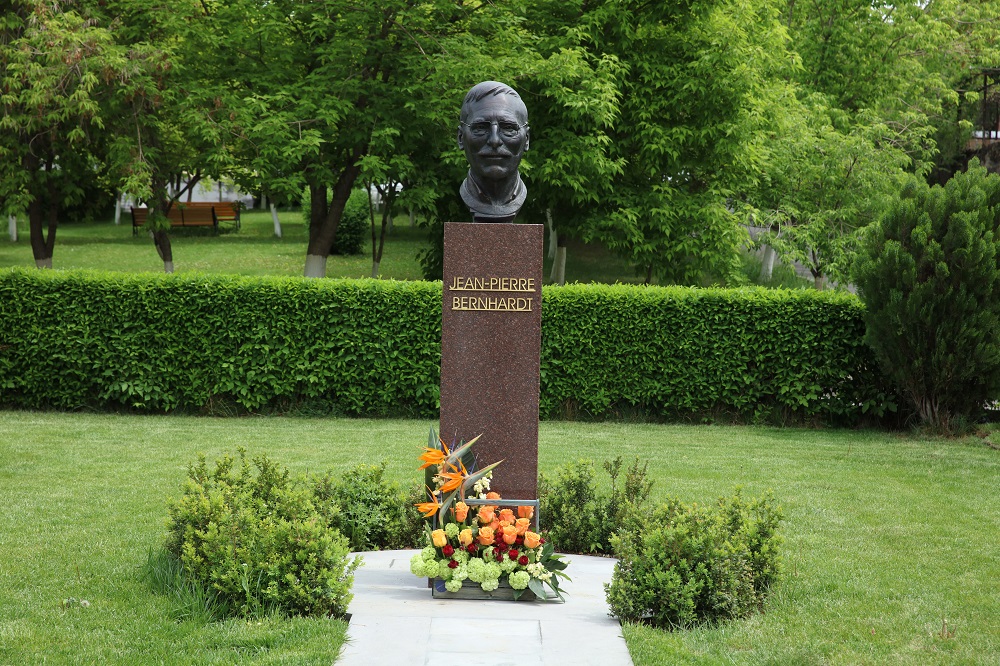
The bust of Jean Pierre Bernhardt in "ArBeS"
29 April 23
A bust of Jean-Pierre Bernհardt, a Swiss humanist and a great friend of “Arabkir” Medical Complex, was placed in the yard of "ArBeS" Health Center. This is a sign of love and gratitude to a person with whom "Arabkir" has had a long and fruitful journey since the 1988 earthquake.
The commemoration ceremony was attended by Jean-Pierre's wife and son, Françoise Bernhardt and Martin Bernhardt, Lukas Rosenkranz, Ambassador Extraordinary and Plenipotentiary of Switzerland to Armenia, Jean-Pierre's Armenian colleagues, friends and students.
"If I start telling the story of our friendship, our plans, difficulties and successes, it will take days to present it all. What you see today in the "Arabkir" Medical Complex, in the "ArBeS" Health Center, in the "Aparan" health camp, in what serves the Armenian people today, the Armenian children, in all that, Jean-Pierre has his contribution. We wouldn't be what we are today if Jean-Pierre wasn't in our lives and if he didn't teach us to dream. Jean-Pierre was our dear friend, our invaluable advisor, and for me personally, someone who became a brother," said Professor Ara Babloyan in his speech.
"In the short period of my diplomatic mission in Armenia, I realized that Jean-Pierre is one of the symbols of Armenia-Switzerland friendship, and his brotherhood with Professor Babloyan is the source of many programs and ideas aimed at the development of healthcare and improving the quality of children’s life in Armenia. This is invaluable," Ambassador Rosenkranz said.
The attendees were also welcomed by the children from the kindergarten, who presented their warm performances in Armenian and French. Having a kindergarten was also Jean-Pierre's idea.
Ara Babloyan and Martin Bernhardt planted trees next to Jean-Pierre's bust, hoping that they will live long, like the friendship between Armenia and Switzerland, "Arabkir" and Jura canton, Ara Babloyan and Jean-Pierre Bernhardt.
Martin Bernhardt thanked them for the extremely exciting and important event, noting that the most exciting thing are the children, who were always in Jean-Pierre's mind and dreams. "And now we are happy that Jean-Pierre is here at “ArBeS” with this work so alive, so natural, simple and modest like him," said Martin Bernhardt, giving special thanks to the author of the sculpture, Emin Petrosyan.
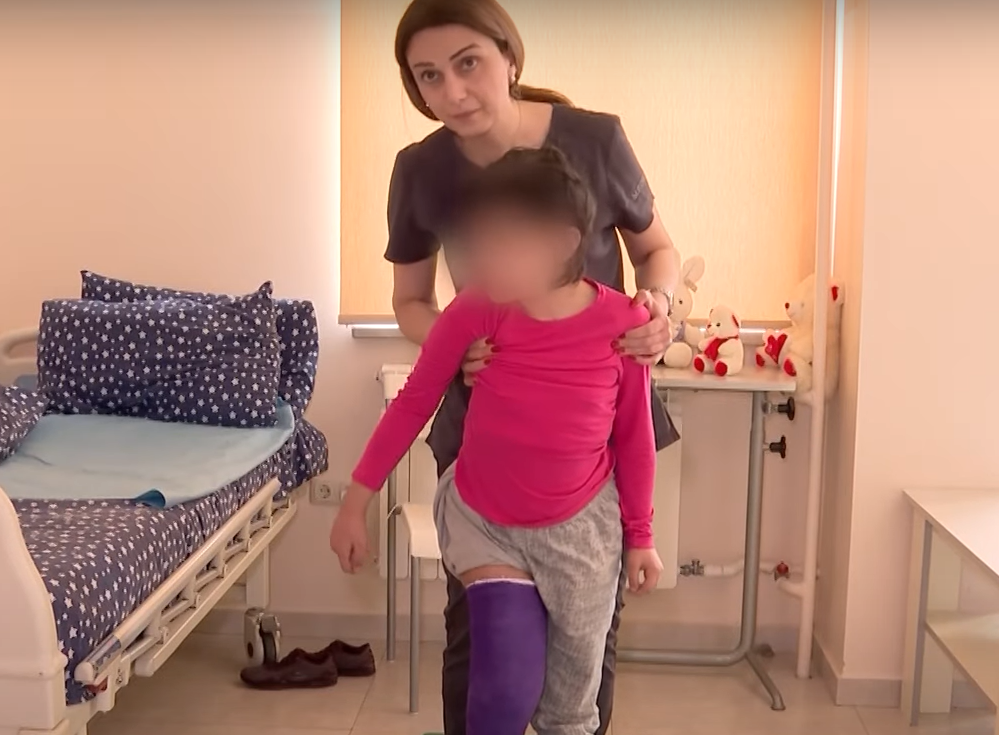
Arin from Iraq at “Arabkir” MC
28 April 23
10-year-old Arin has been in "Arabkir" Medical Center for several months. The tragic car accident changed the life of the Iraqi-Armenian child, leaving her without parental care and causing a number of health conditions.
The little girl was transferred to Armenia, and with the support of the Ministry of Health and with the efforts of the medical team of "Arabkir" she has progressed well.
The Public TV covered Arin's story.
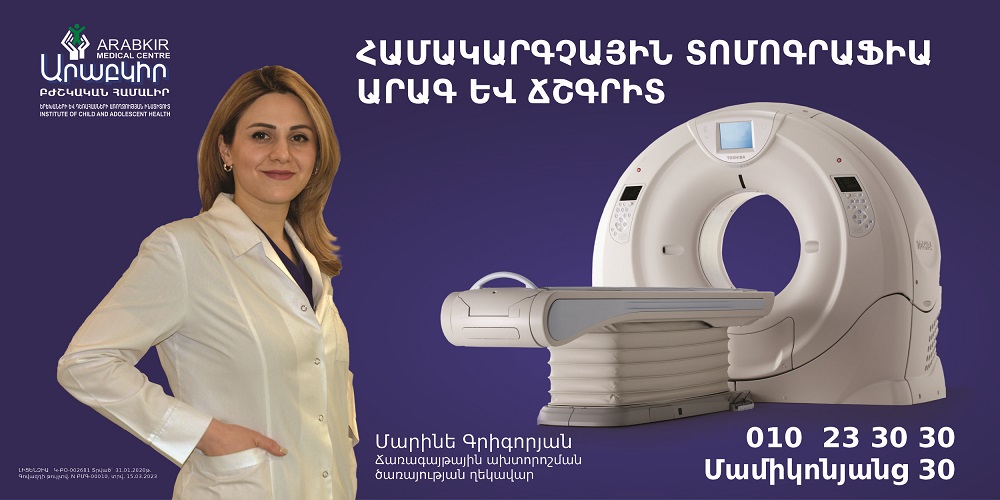
Computed Tomography
21 April 23
Dear patients,
in response to your questions, we would like to inform that computed tomography, or as it is commonly known, CT scan, is performed in the “Arabkir” Medical Center:
for the examination of all organ-systems,
without age restrictions (both for adults and children)
with and without contrast,
with and without anesthesia, based on indications.
You can read about computed tomography, as well as about other functions of the Diagnostic Radiation service of the “Arabkir” Medical Center by following the link.
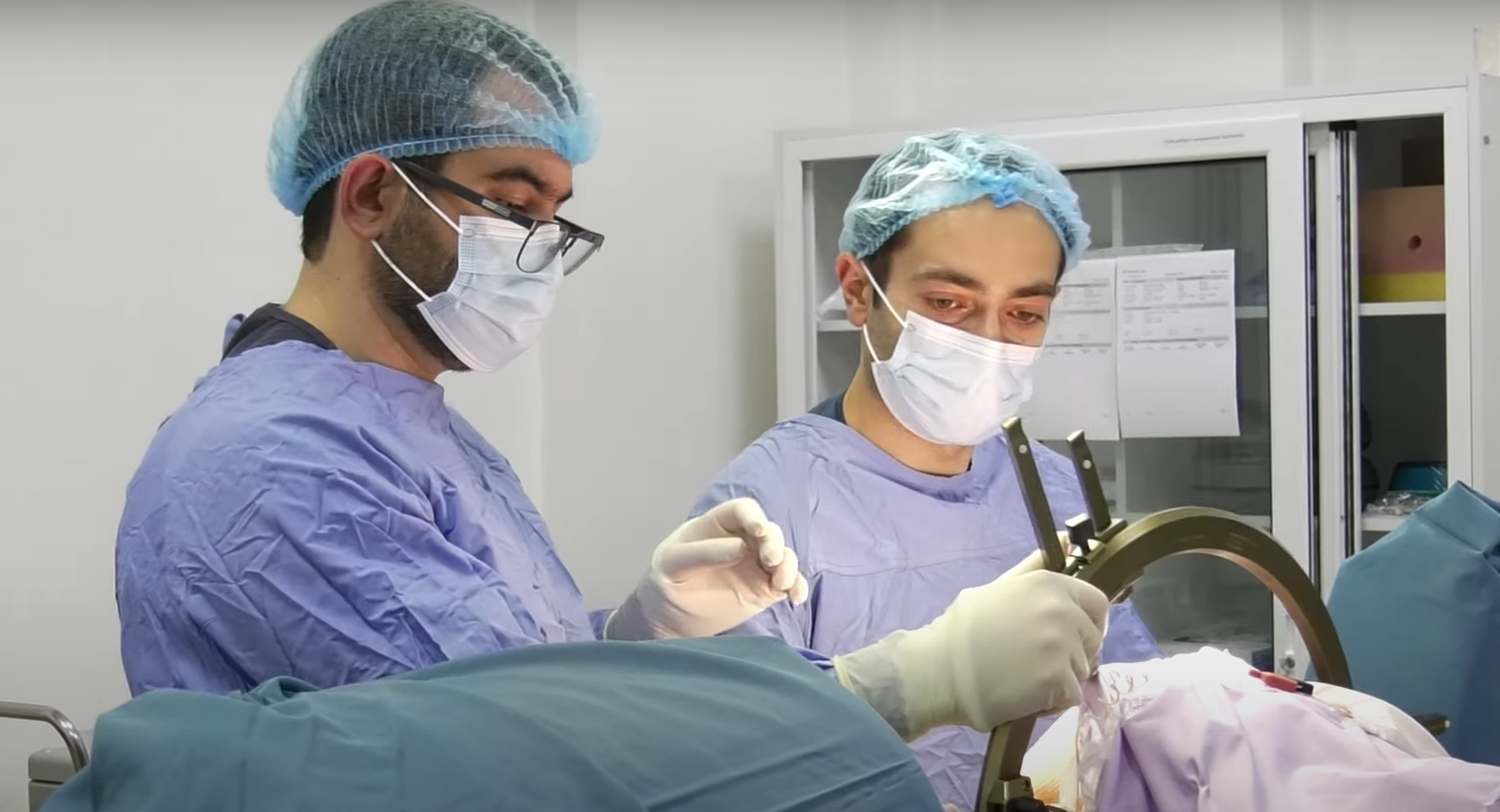
Surgical Treatment for Parkinson’s Disease
11 April 23
April 11th is highlighted in medical calendar as Parkinson’s Disease Awareness Day:
an occasion to talk about parkinsonism, its diagnosis and modern methods of treatment.
The video from news.am refers to neurosurgical treatment of parkinsonism at "Arabkir" Medical Center emphasizing how effective deep brain stimulation with neuromonitoring can be and how important it is for improving the quality of human life.
The 60-year-old man has had Parkinson's disease for over 10 years. He had been receiving drug treatment for many years, but the medications are no longer helpful, and even cause some complications. According to neurologist Zaruhi Tavadyan in a conversation with NEWS.am Medicine, the man had problems with work, social activities, and quality of life. The doctors at “Arabkir” Medical Center suggested a surgical treatment method - deep brain stimulation, which will allow him to return to his active life.
“Parkinson’s disease is a chronic progressive neurological disorder of the central nervous system. Its classic symptoms are mainly motor: slowness in motion, tremor, impaired gait, coordination problems, muscle stiffness, and many non-motor symptoms like depression, sleep disorders, pain, etc. All of these symptoms together have a significant impact on the quality of life.
During this disorder and drug treatment, patients may experience complications related to the treatment, irregular response to medications, irregular movements. At a certain point, it becomes difficult for patients to continue their treatment with conventional medications alone” says Zaruhi Tavadyan. She also mentions that deep brain stimulation has been used as a treatment method for over two decades. It allows for continuous adjustments in the patient’s mobility over time and helps them to remain active. Deep brain stimulation is a surgery, during which electrodes are placed in specific areas of the brain, which are then connected to a stimulation device implanted under the skin in the chest cavity. The device generates electrical impulses that inhibit abnormal brain activity. This is a complex operation, and surgeons need to find the correct position of electrodes without damaging the motor area of the brain. In the past, the surgery was performed with local anesthesia as the patient had to perform some tasks during the operation in order to evaluate the method's effectiveness and safety. For example, violinist Roger Frisch is known to have played the violin during this type of operation. Today, in “Arabkir” Medical Center, deep brain stimulation is performed with modern technology, neuromonitoring, and there is no longer a need to keep the patient awake, says neurosurgeon Sevak Badalyan.
“In our center, deep brain stimulation is performed under general anesthesia and under the control of neuromonitoring, which has many advantages. Firstly, the patient is in a more comfortable state under general anesthesia, and neuromonitoring allows us to adjust the electrode's position and avoid possible side effects of stimulation. Neuromonitoring is a widely used method nowadays. It involves closing an electrical circuit, i.e . a stimulation of the corresponding area is done and the stimulus is recorded from the peripheral muscles. In other words, it can be facial muscle, upper or lower limbs, therefore, it will be facial nerve or hypoglossal nerve, depending on the specifics of the operated region. The goal is to avoid the damage to relevant areas and pathways” he says.
Before the operation, doctors carefully study the patient's brain MRI image, find target nuclei and insert electrodes virtually. Then, right before the operation, contrast CT-scan is performed, the results of which are then combined with MRI. To determine the precise place of where electrodes should be placed, a special coordinate system called stereoscopic circle, is used, Niko Arzumanyan, the head of the Neurosurgery Service has noted.
“The intervention consists of several stages. In the first stage of the operation, a special metal device is attached to the patient’s head, which helps us to create a virtual coordinate system, and by combining the results of the computed tomography and MRI imaging through the appropriate program, we are able to get coordinates we need, and with the corresponding coordinates, insert the electrodes in the right place with an accuracy of up to 0.6mm” he says.
Niko Arzumanyan mentions that deep brain stimulation has been used in “Arabkir” Medical Center for over a year now, and all the operated patients are satisfied with the results. All of this became possible thanks to the latest equipment and digital technologies acquired by the center.
Deep brain stimulation is used not only to treat parkinsonism, but for other neurological and even psychiatric disorders as well, says Zaruhi Tavadyan.
“Deep brain stimulation is used primarily for Parkinson’s disease, as well as for genetic or essential tremor, and in pediatrics for some types of dystonia. By now, the indications for deep brain stimulation are increasing, the field is expanding, and in the future this method will be used for movement disorders as well, and not only. For example, it can be used in psychiatry, but for now it is used for movement disorders such as classical parkinsonism, essential tremor and dystonia”, she says.
3-4 weeks after the surgery, when the patient’s wounds have healed, the doctors will run the stimulator and make the adjustments. As a result, the patient's slowness of movement, tremor, gait and speech will be corrected, the use of medication will be reduced, which will significantly improve his quality of life.
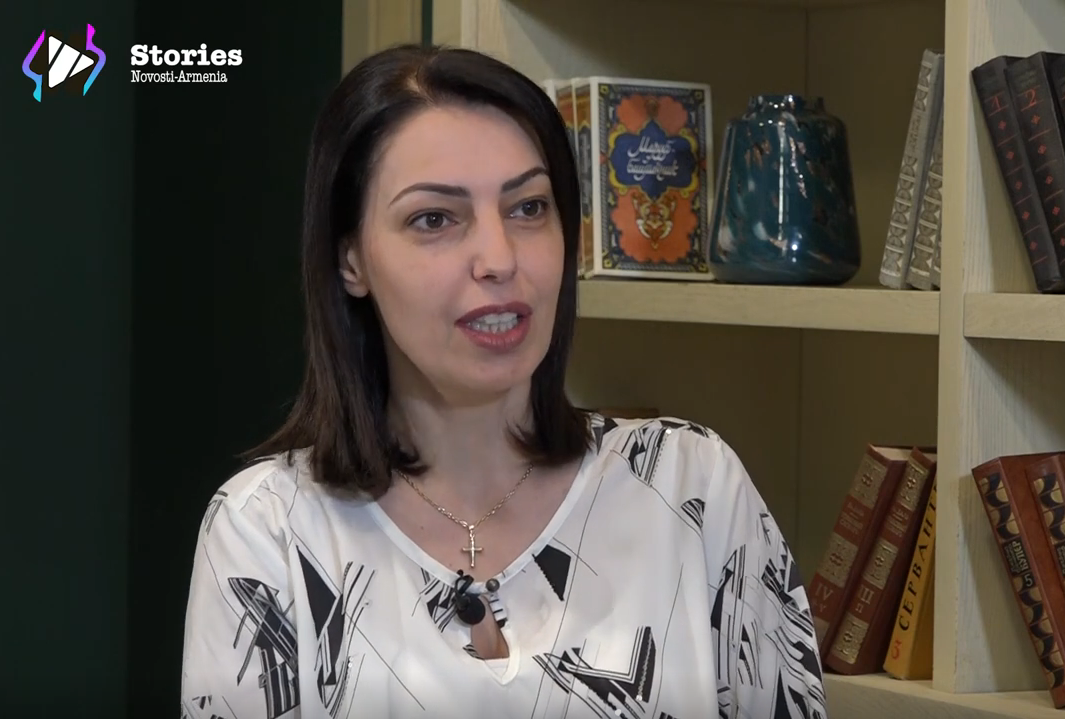
Aggression in Children
10 April 23
Why do children act aggressively, what types of aggression there are, which are the main causes of it, and how can aggression be managed.
Varvara Avakimyan, psychologist at "Arabkir" Medical Center, has presented details about aggression in children and mentioned most common myths and facts about this topic.
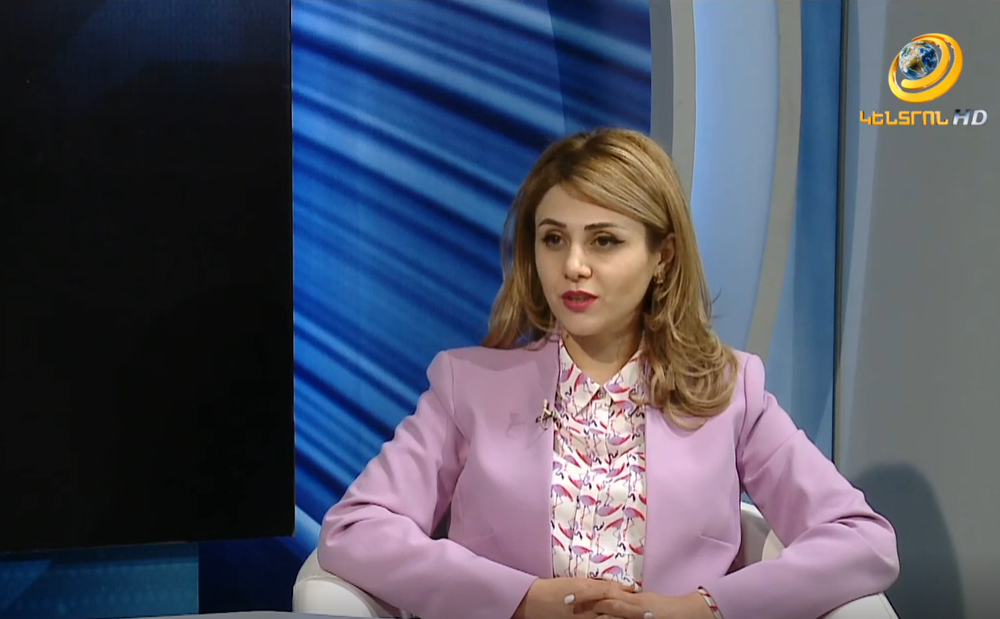
Health and Beauty: Computed Tomography
07 April 23
April 7th is the World Health Day, and in Armenia, also the Maternity and Beauty Day. Because diagnosis is one of the most important aspects of healthcare and treatment of diseases, we suggest you watch this edition of the "Health and Beauty" program, where Marine Grigoryan, the head of the Diagnostic Radiation Service of "Arabkir" Medical Center, talks about radiation diagnostics.
Protect your most valuable possession - your health - by preventing and diagnosing diseases early.
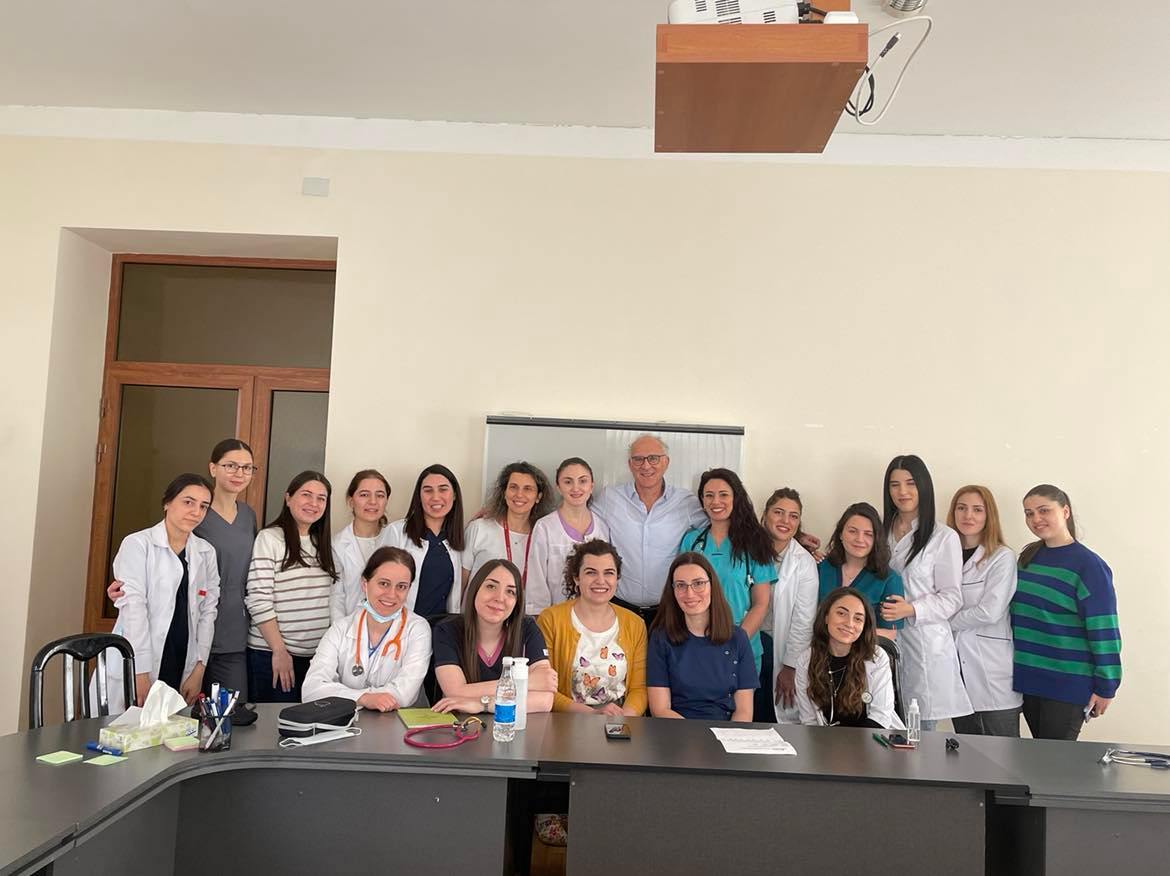
Professor Moeller at “Arabkir” MC
04 April 23
The visit of Professor Alexander Moeller, the head of the Respiratory Diseases Department at the University Children's Hospital of Zurich, to the “Arabkir” Medical Center has concluded.
Almost 100 doctors from “Arabkir” and other medical institutions have participated in the two-day course.
The main topics of the course were related to pediatric respiratory medicine, covering details of diagnosis and treatment. Professor presented the latest updates of the guidelines, which are widely discussed not only in Armenia, but all over the world. Participants had the opportunity to receive updates directly from the head of the guideline's author group, and obtain comprehensive answers to many professional questions.
The cherished aspect of Professor Moeller’s traditional visits is the bedside teaching, where discussions take place directly next to the patient and with them. This format provides a unique opportunity, especially for clinical residents at “Arabkir” MC, to participate in the process of examining and analyzing the problem with a world-renowned Professor.
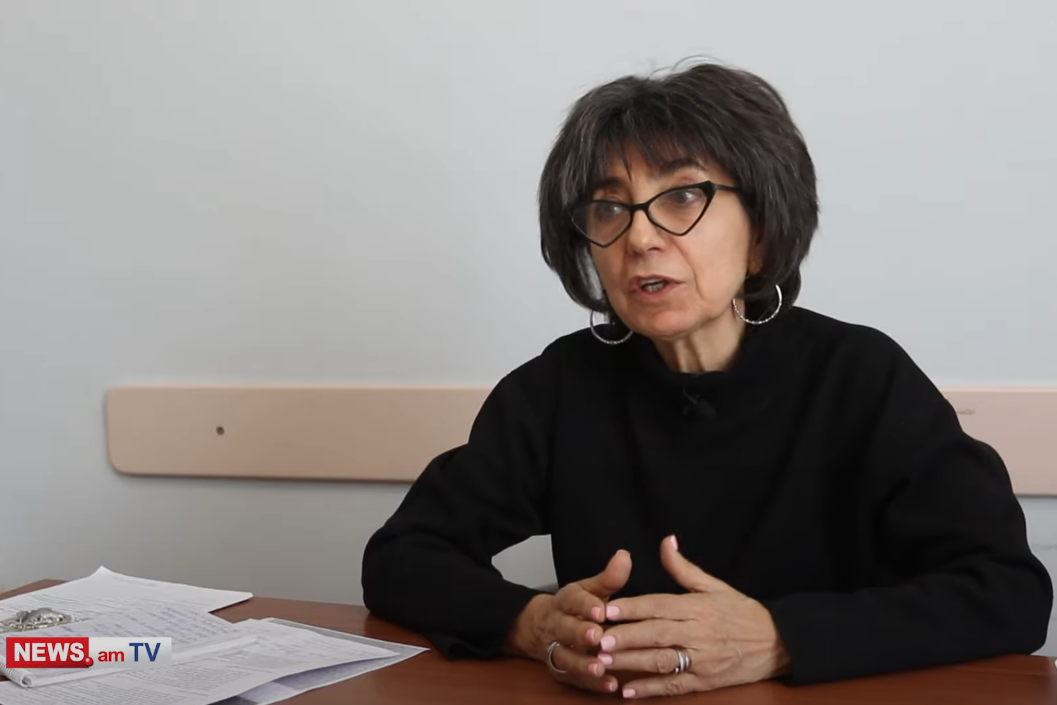
April 2nd: Autism Awareness Day
03 April 23
On the occasion of World Autism Awareness Day, Gayane Zakaryan, the head of the Rehabilitology service of the "ArBeS" Health Center of the "Arabkir" Medical Center, answered the questions of News.am's "Ask the doctor" series.
Listen about:
how to recognize autism,
when is the right time to see a doctor,
what are the main causes of this problem,
what are the main approaches to working with a child with autism,
how can people with autism take care of themselves and be independent.
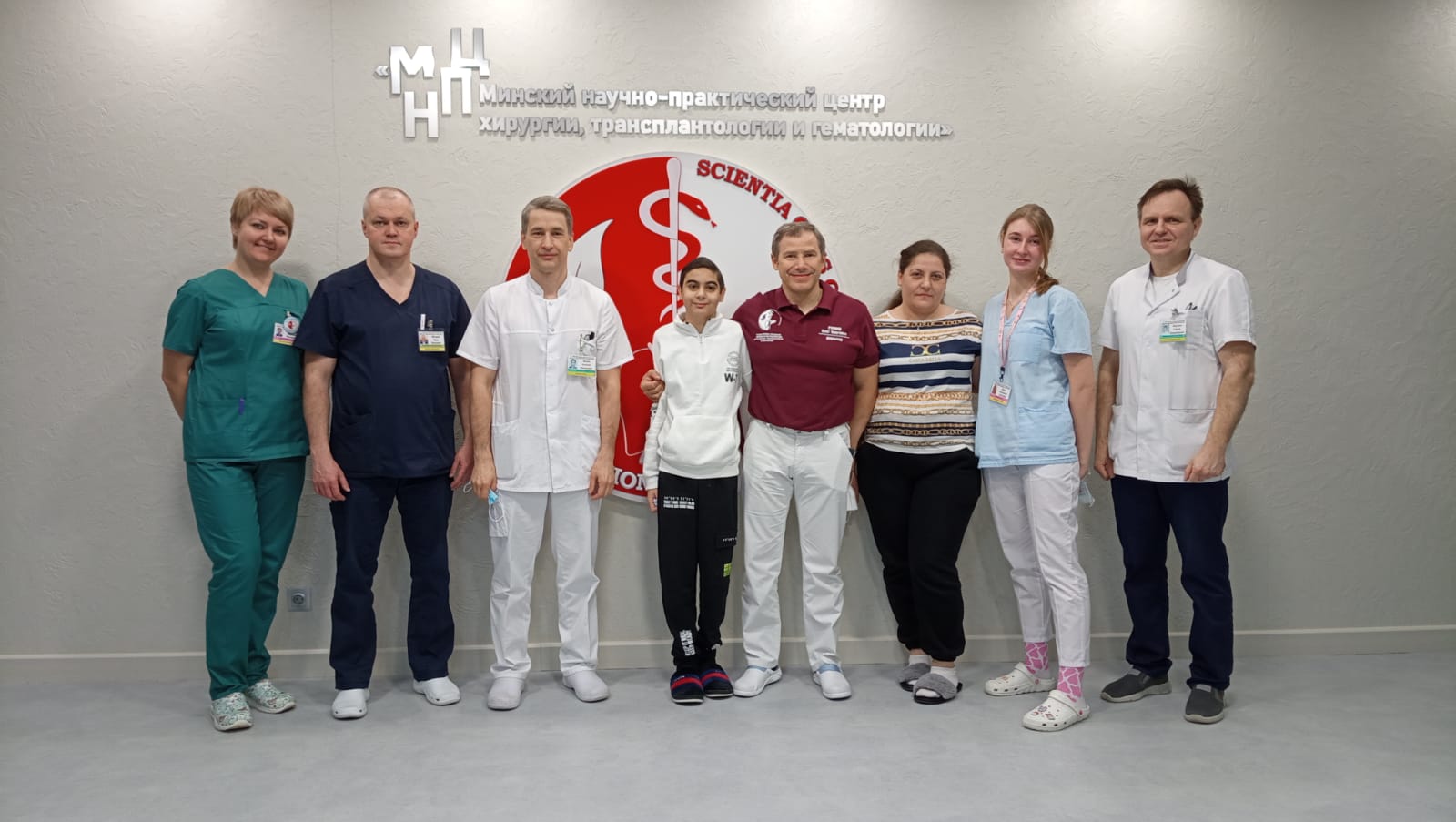
Gratitude Letter to the Ambassador of Belarus
28 March 23
Professor Ara Babloyan, the Scientific Head of “Arabkir” Medical Center, sent a gratitude letter to the Ambassador of the Republic of Belarus in Armenia, Mr. Alexander Konyuk, for the great support of our Belarusian partners in the important mission of saving the life of another child.
We are also grateful to our faithful friend, the Health Fund for Children of Armenia, for the support shown in child’s surgery, and for transportation to and from Minsk.
Your Excellency, Mr. Ambassador,
accept our gratitude for the great support of our Belarusian partners in the crucial mission of saving the life of another child.
Rafayel Khachinyan was born in 2008 with congenital hepatic fibrosis and over the years the necessity of liver transplant, which is the only solution for this problem, has arisen.
The transplant was performed on January 31, 2023, in Yerevan, with the joint efforts of doctors from the “Arabkir” Medical Center-Institute of Child and Adolescent Health and the Minsk Scientific and Practical Center of Surgery, Transplantology and Hematology, under the leadership of Professor Oleg Rummo.
The surgery was successful, but during the postoperative period there were two critical episodes when the child had experienced acute rejection of the transplant. The first episode was resolved through conservative treatment, which was not effective in the second episode. The specialists of both clinics decided to transfer the child to Minsk for further examinations and treatment.
The child was transferred to Minsk on March 11 and returned home on March 24 with stabilized health.
This case is not only about powerful professional abilities, but great humanity, kindness, healthy and honest cooperation as well. We are immensely grateful to our little compatriot and his family, as well as to our Belarusian partners, for standing with us and providing support during our clinic's first steps in liver transplant.
We would also like to express our deep gratitude to the Belarusian “Belavia” company for their tremendous support in arranging the airplane tickets.
Respectfully,
Professor Ara Babloyan,
Scientific Head of the “Arabkir” MC-ICAH
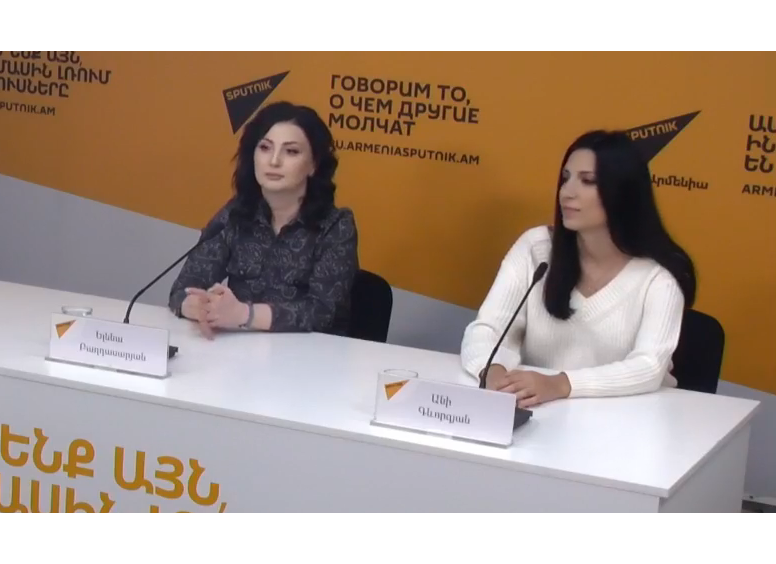
Press Conference on Epilepsy Day
28 March 23
Ani Gevorgyan, the head of the Neurology Department of “Arabkir” Medical Center and Yelena Baghdasaryan, the President of the “Path of Life” Foundation took part in a press conference dedicated to Epilepsy Day at Sputnik Armenia Radio Station.
They answered questions about epilepsy, the difficulties faced by people with this problem and ways to overcome them. The important message of the day is not to label people with epilepsy for having it. It is a problem that can happen to anyone. You just have to learn how to manage epilepsy and behave in a proper way in case of epileptic seizures.

 English
English
 Հայերեն
Հայերեն Русский
Русский